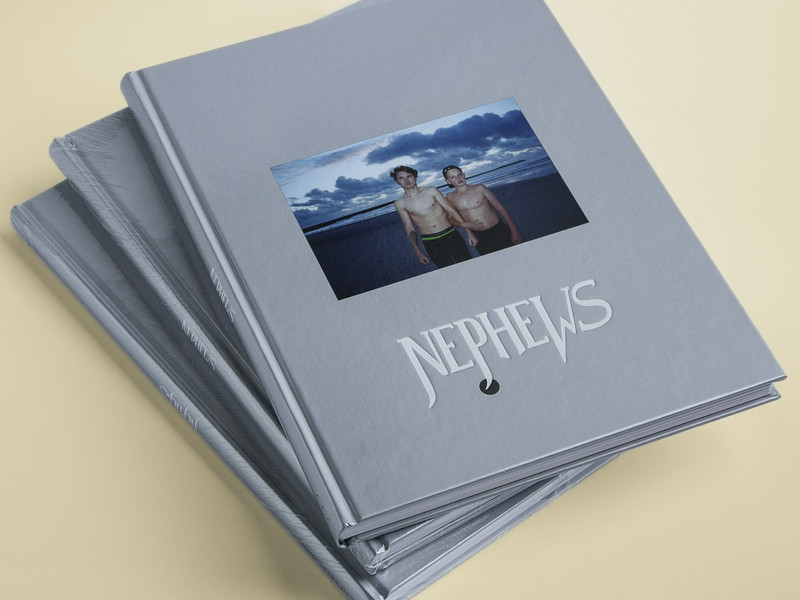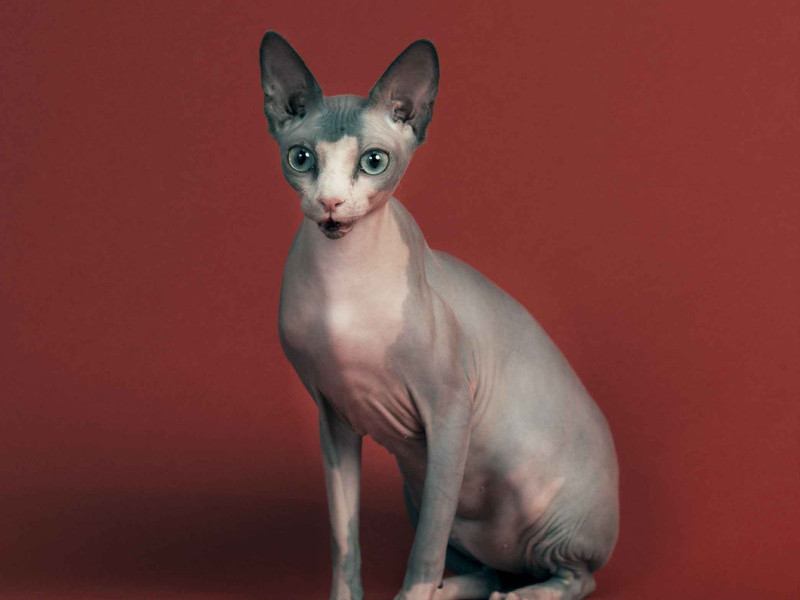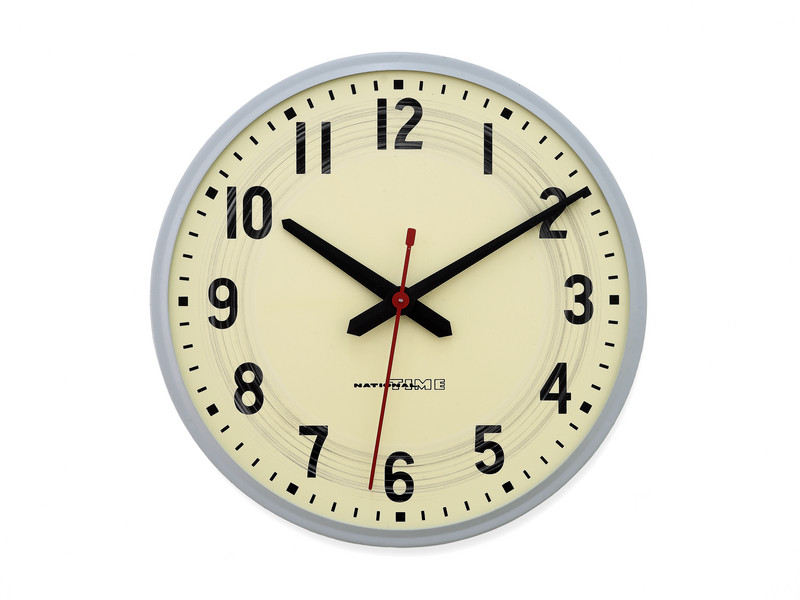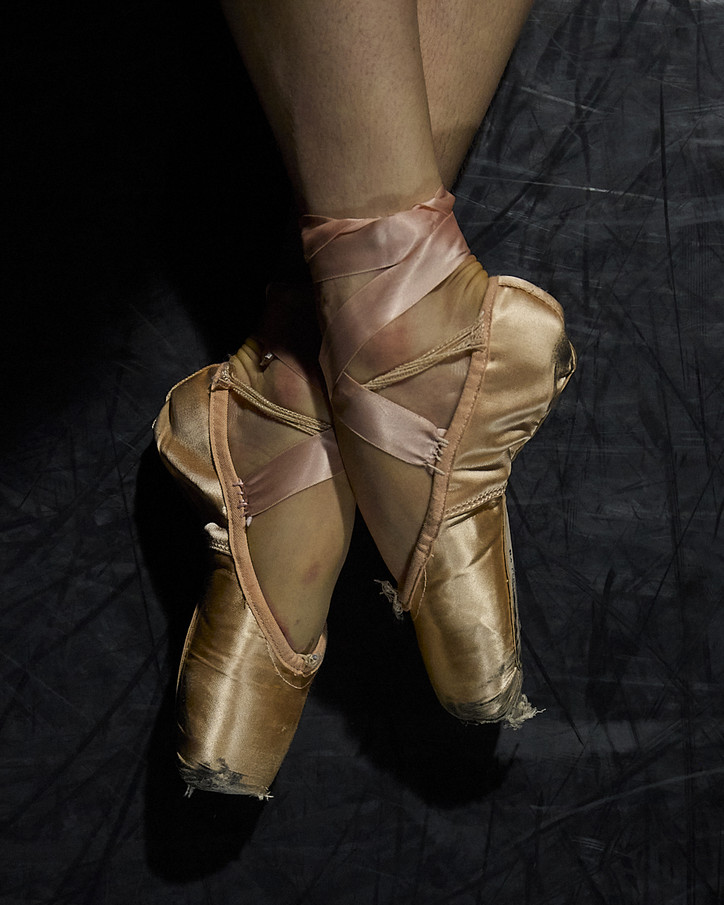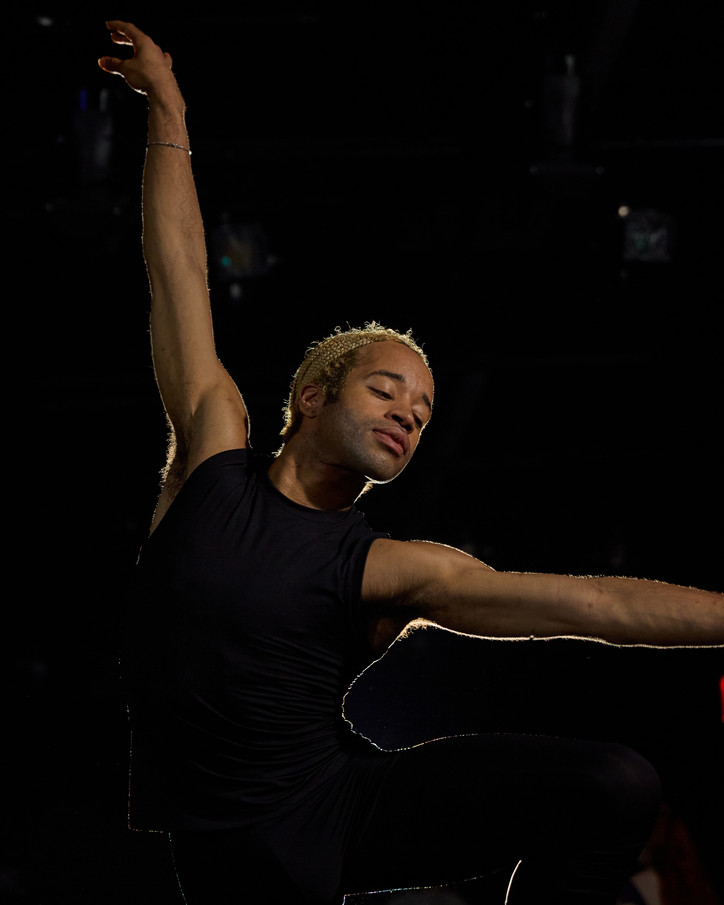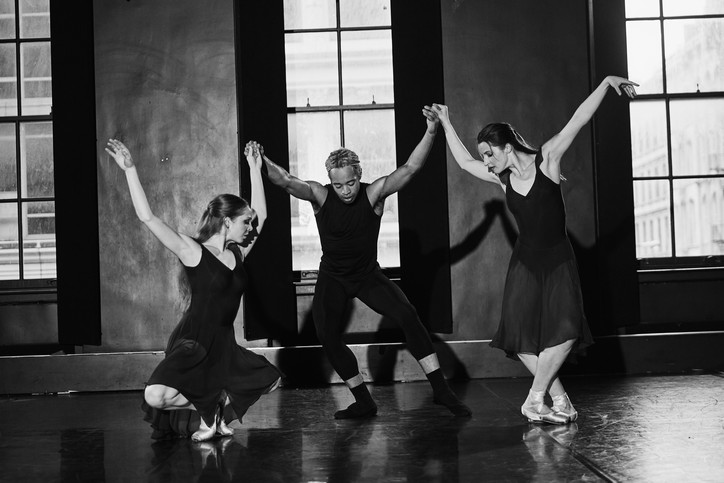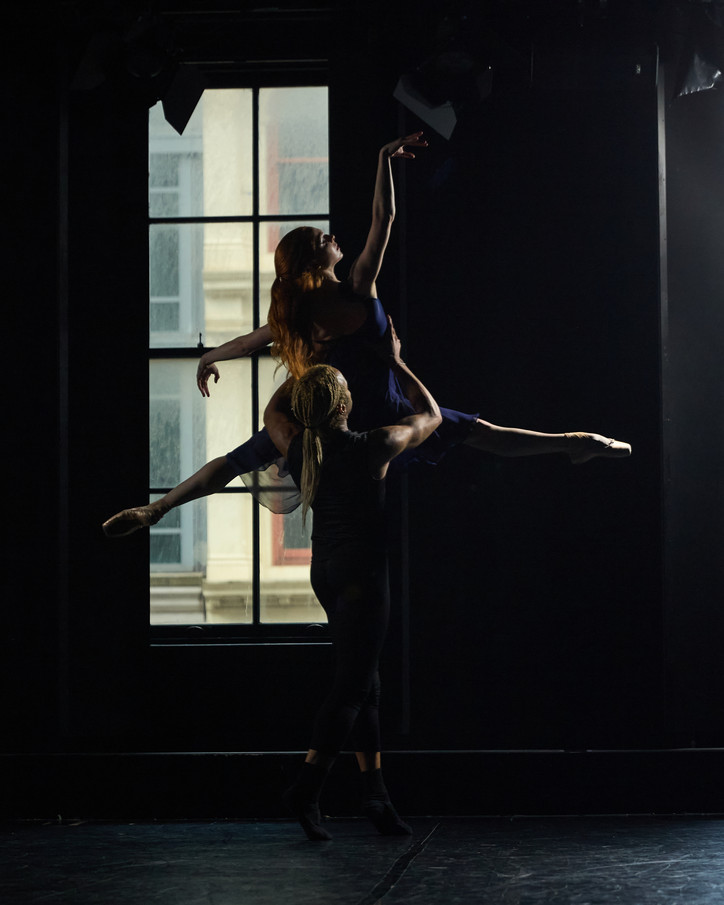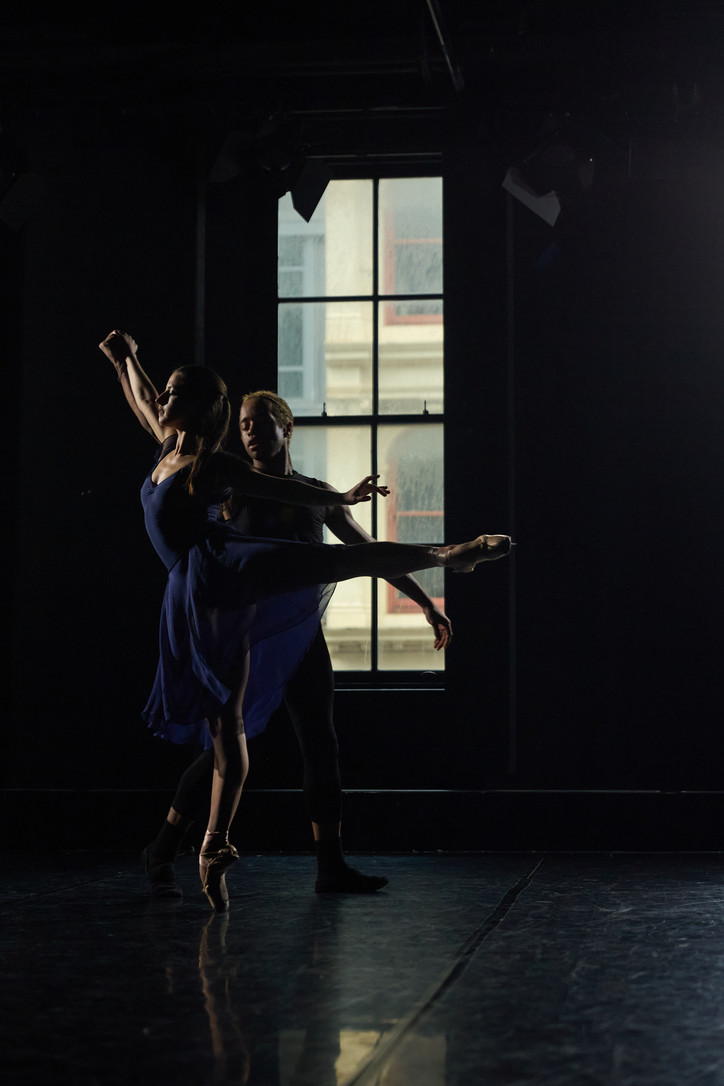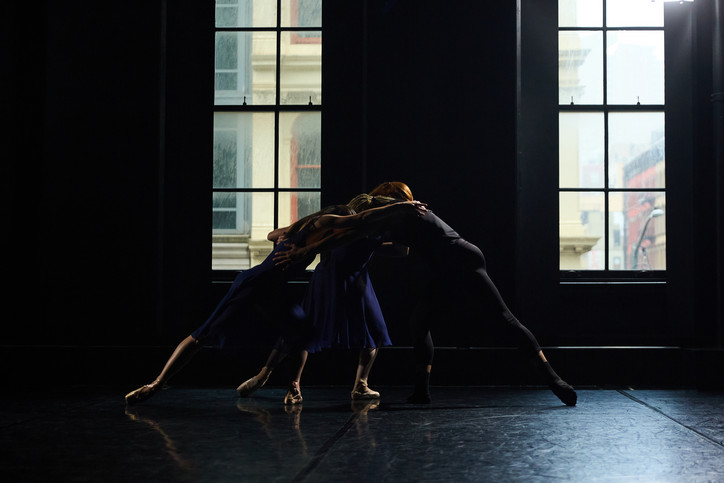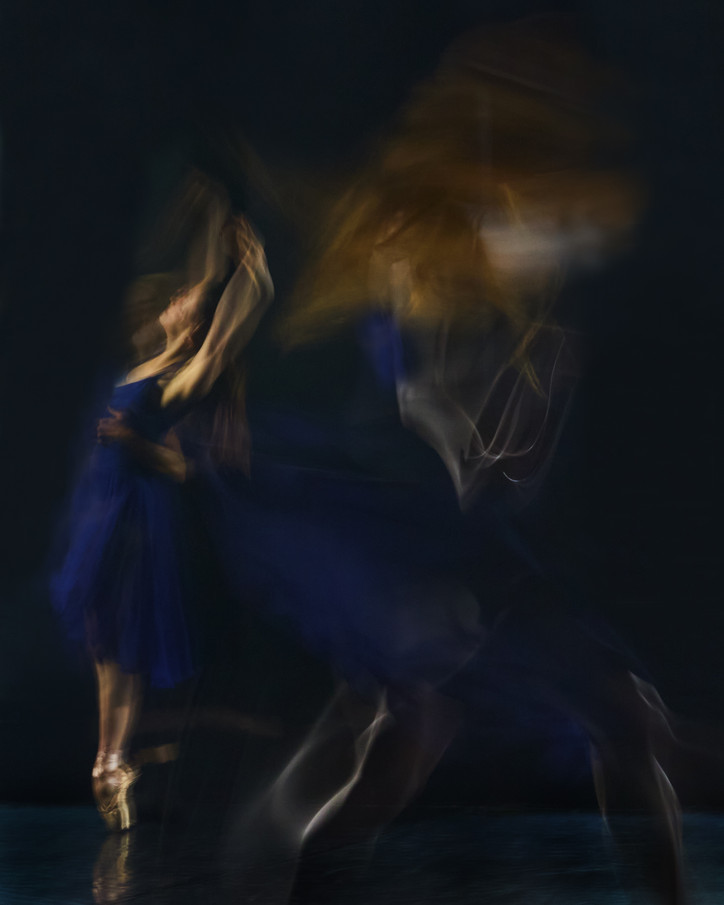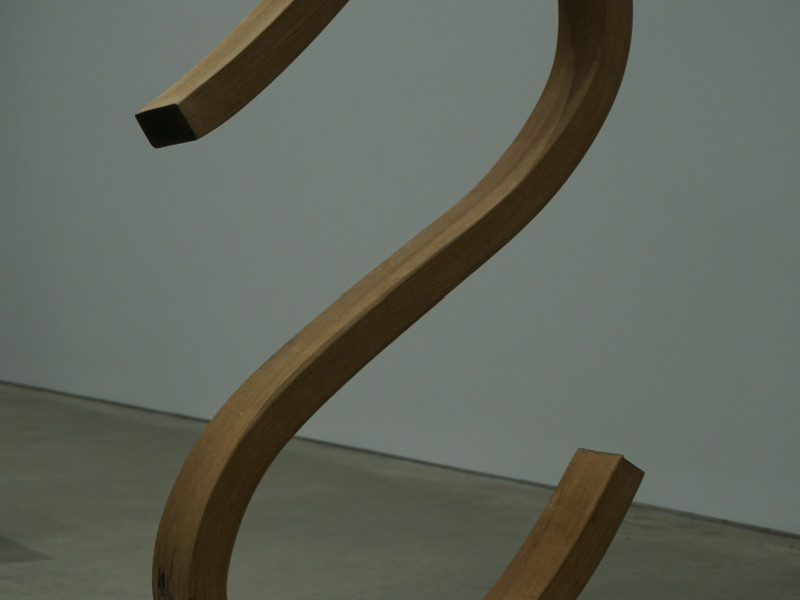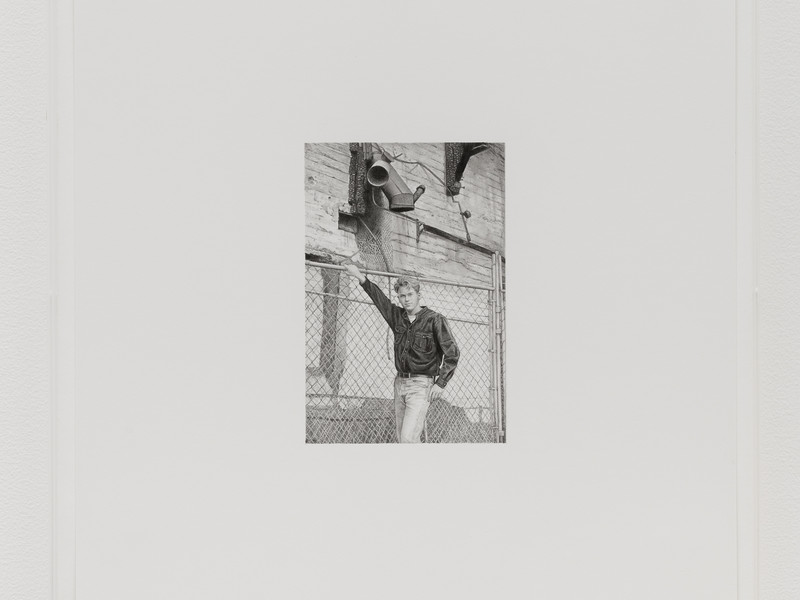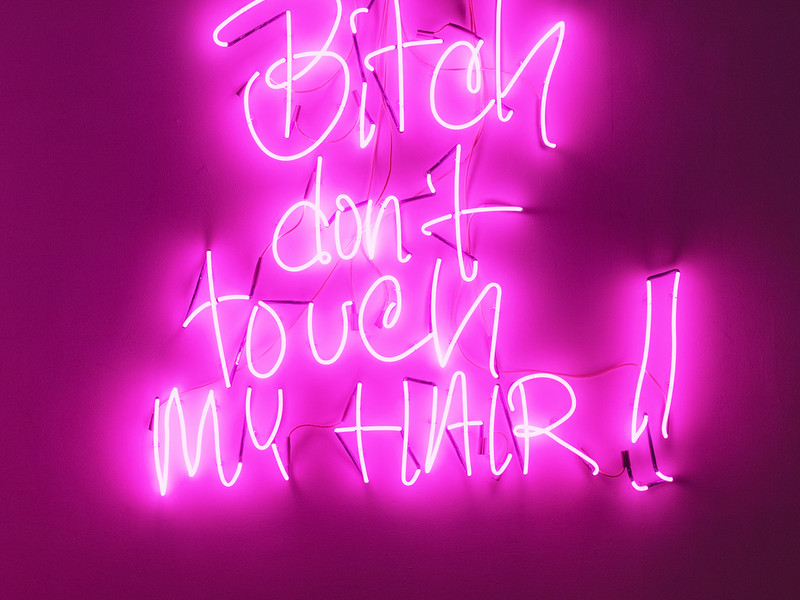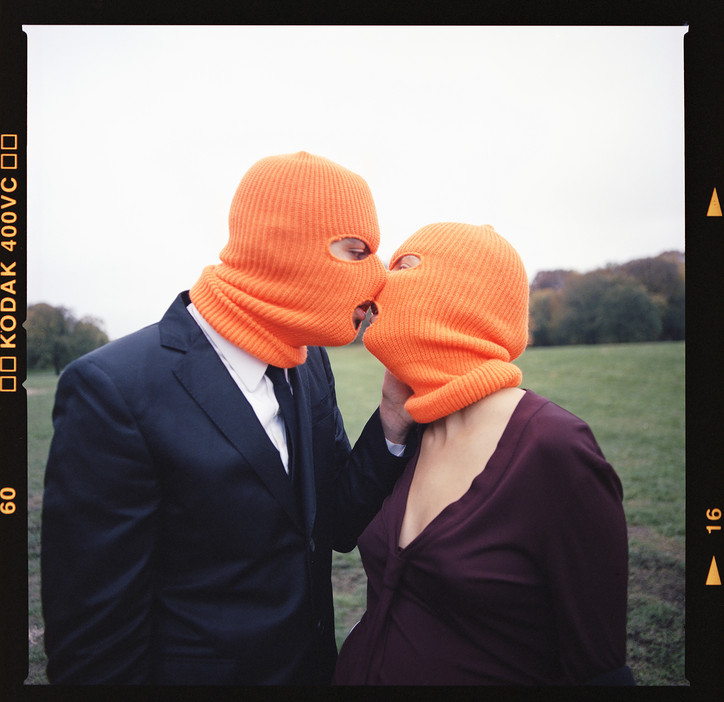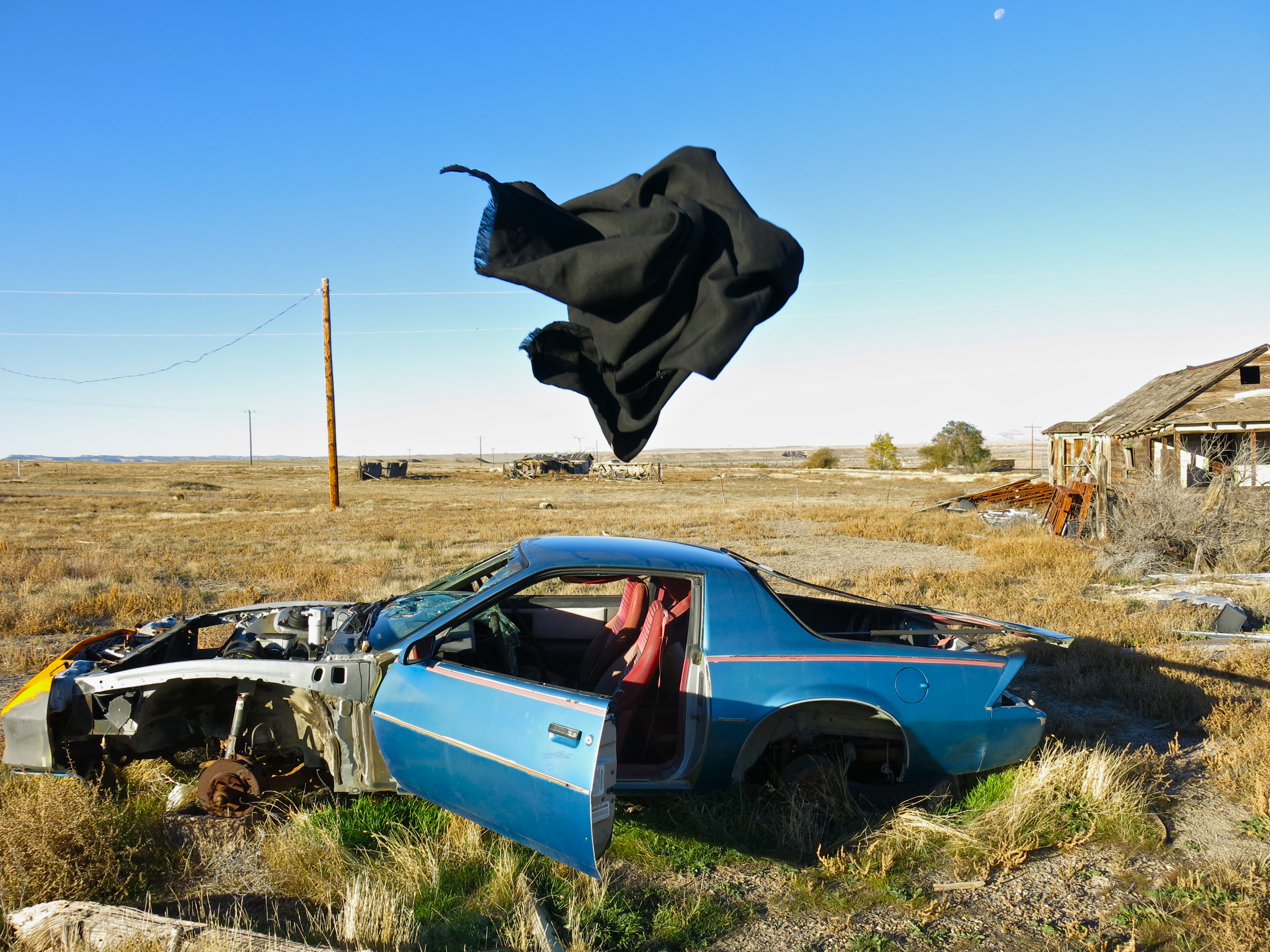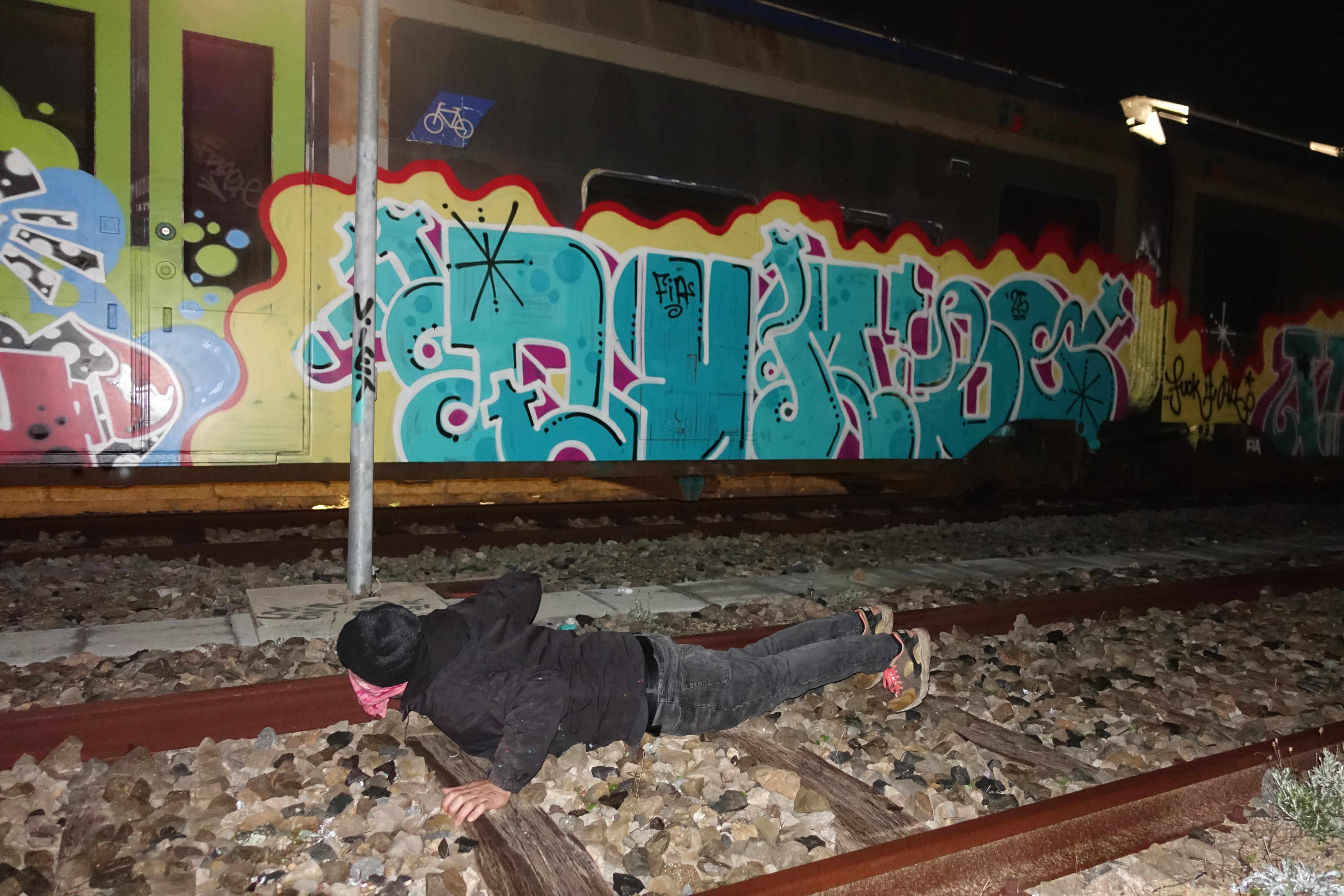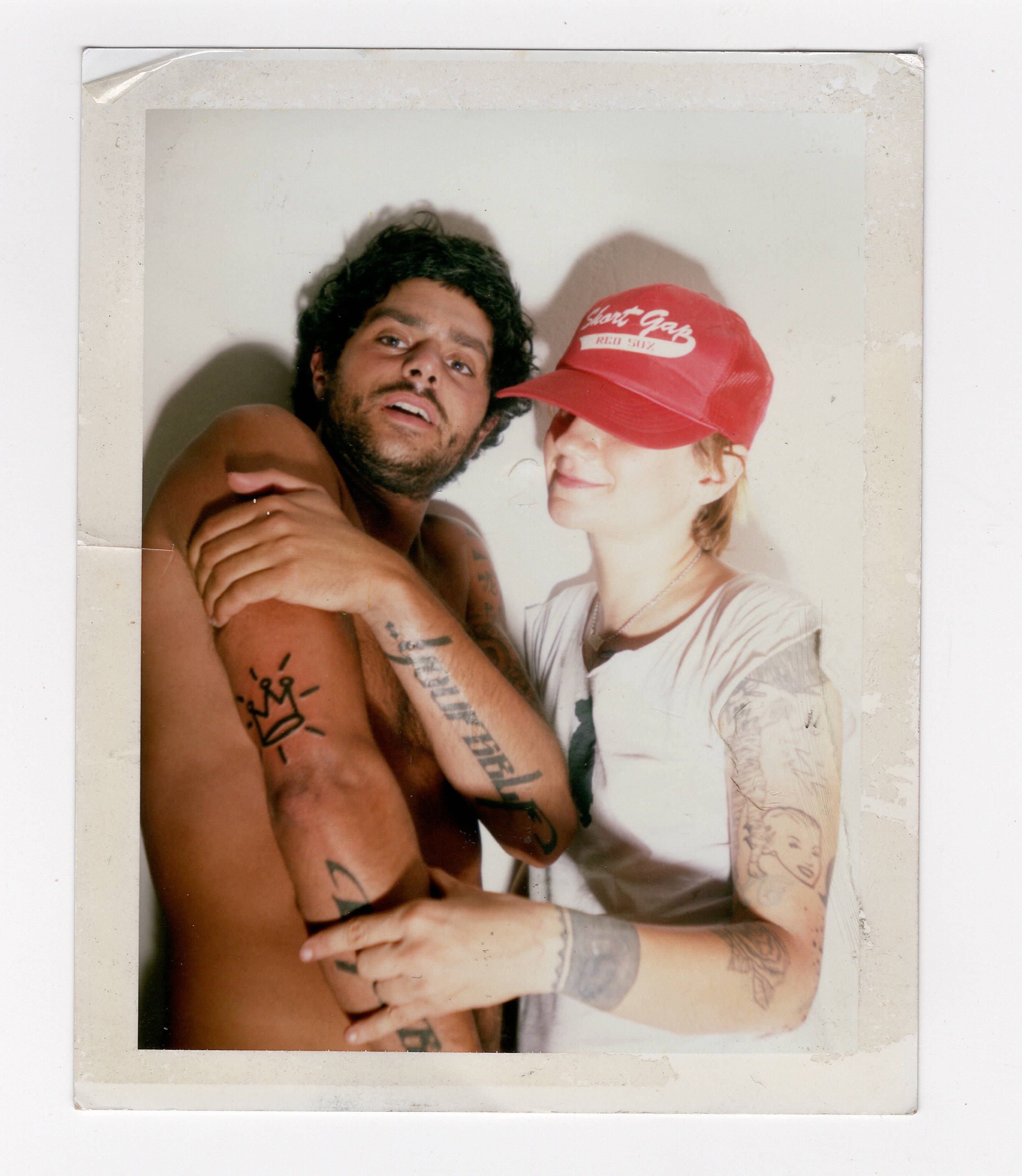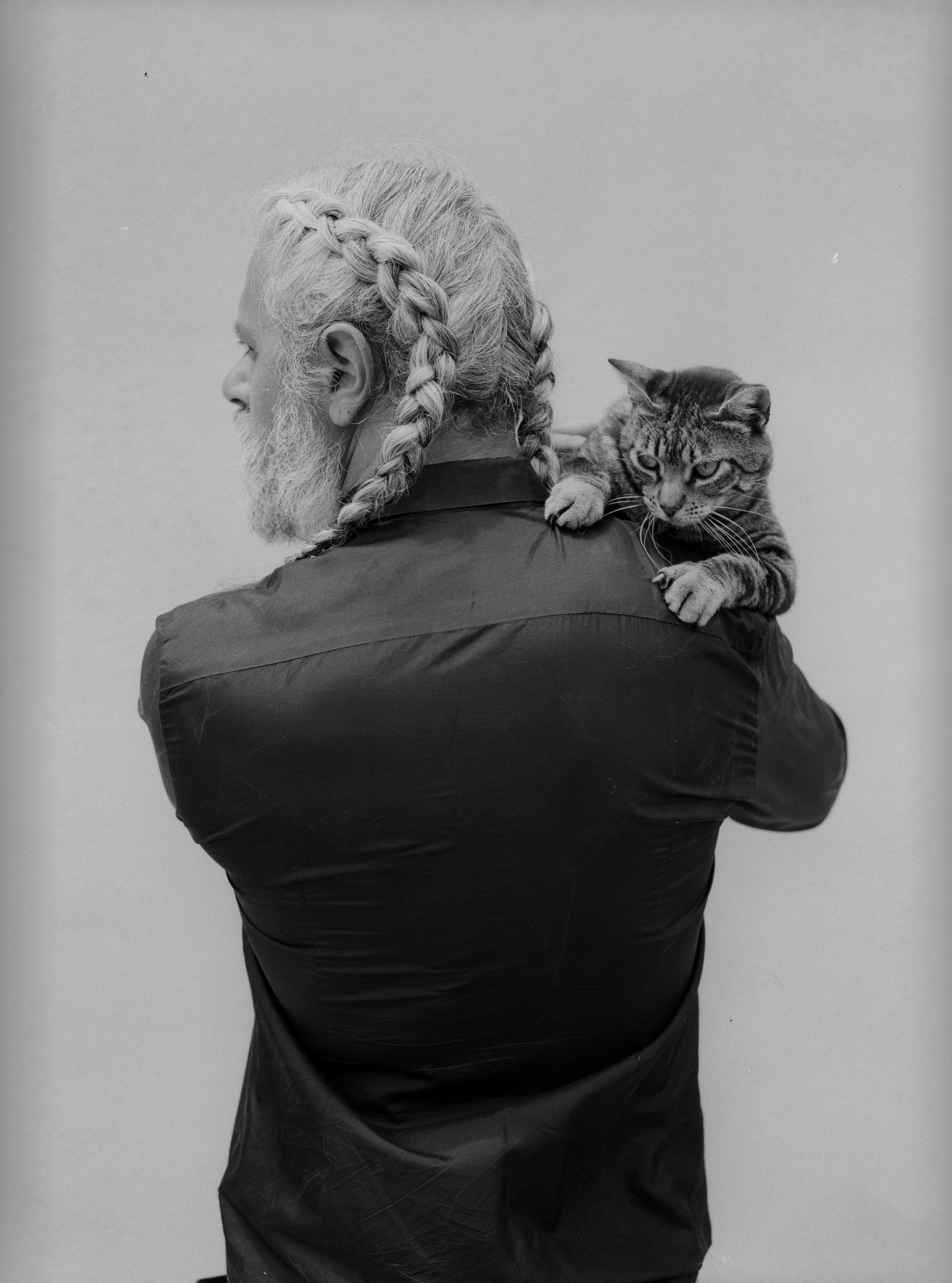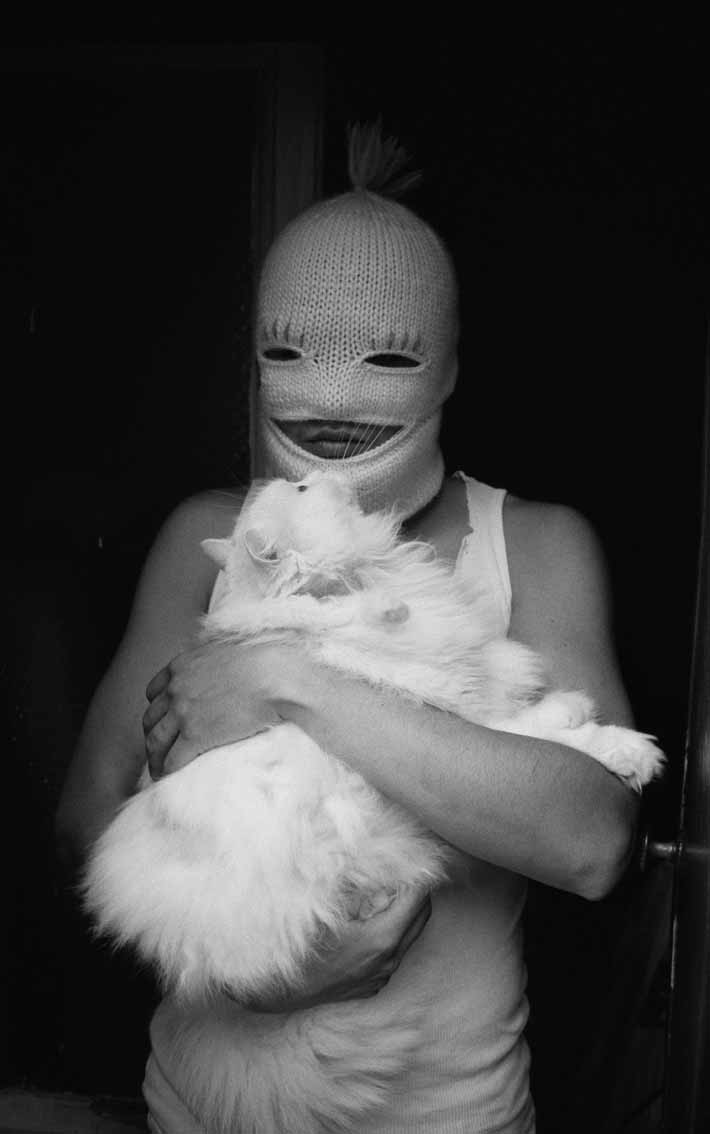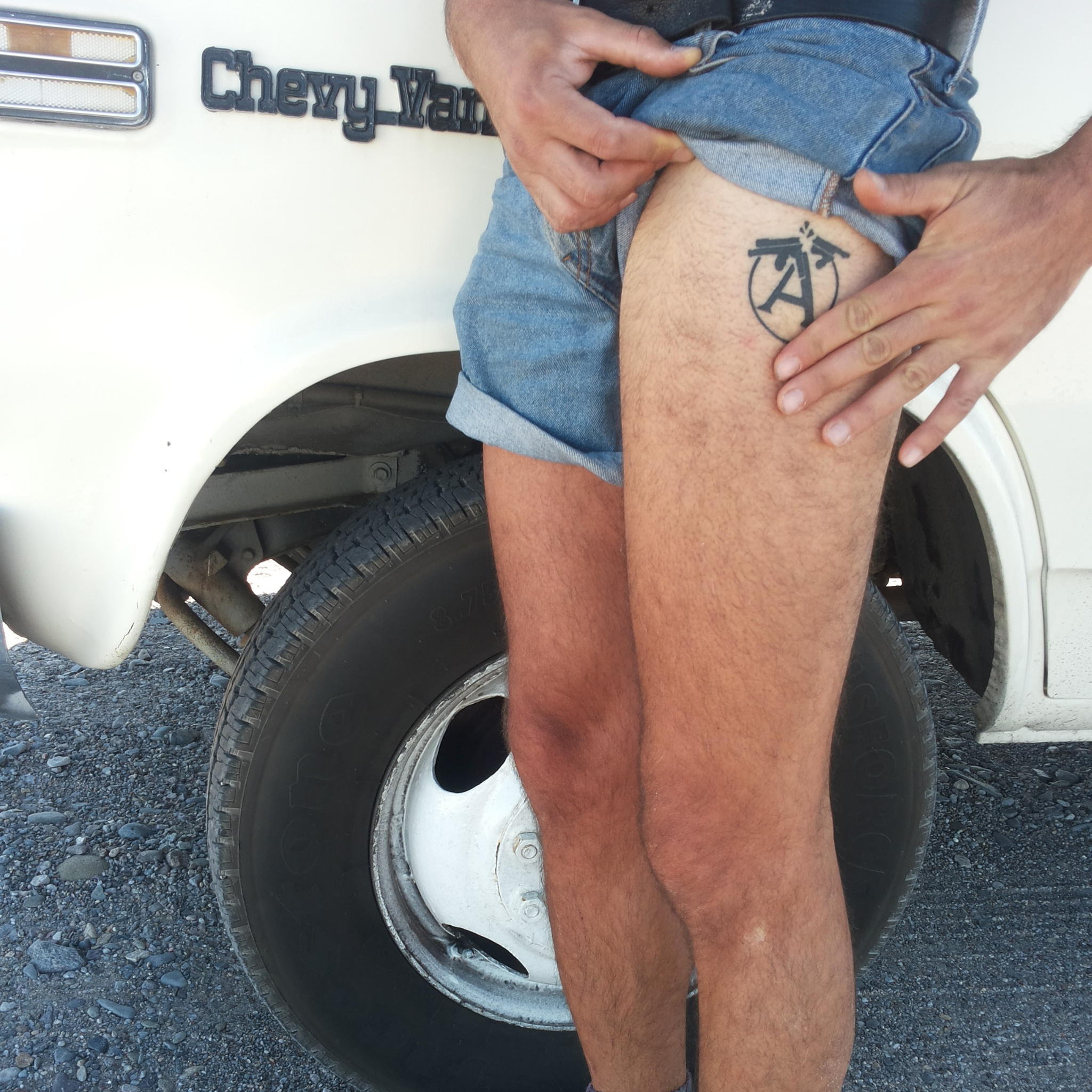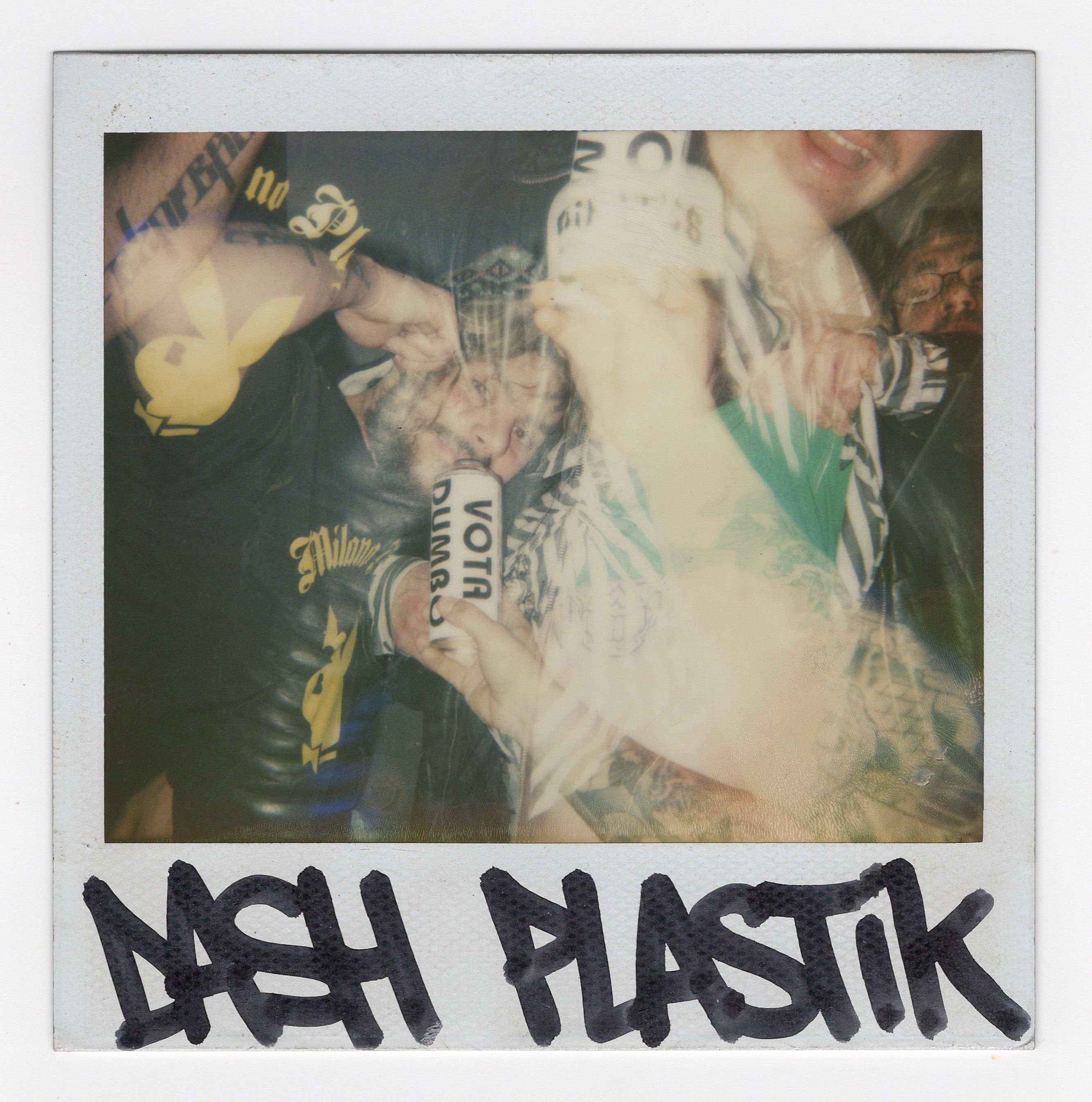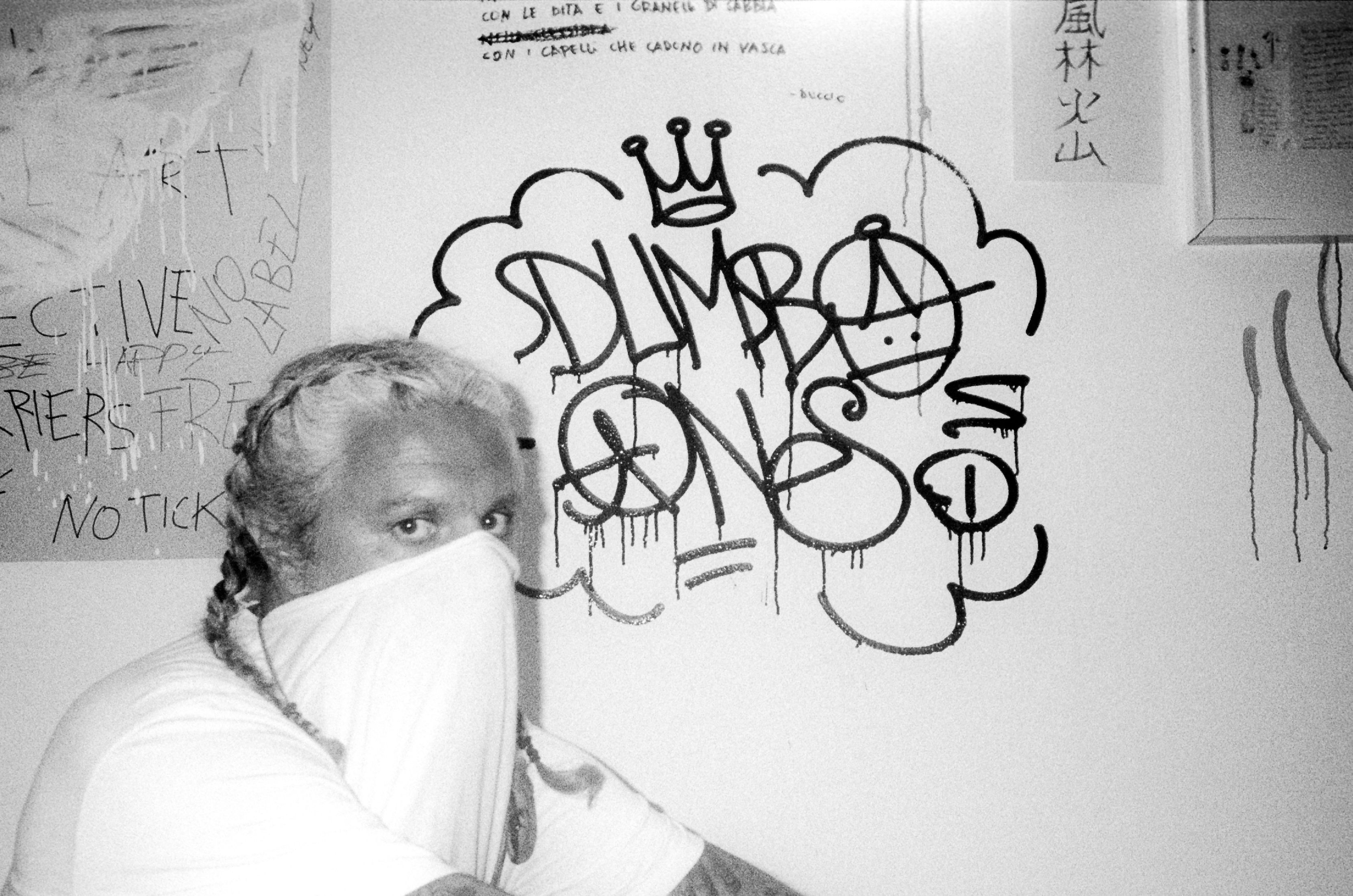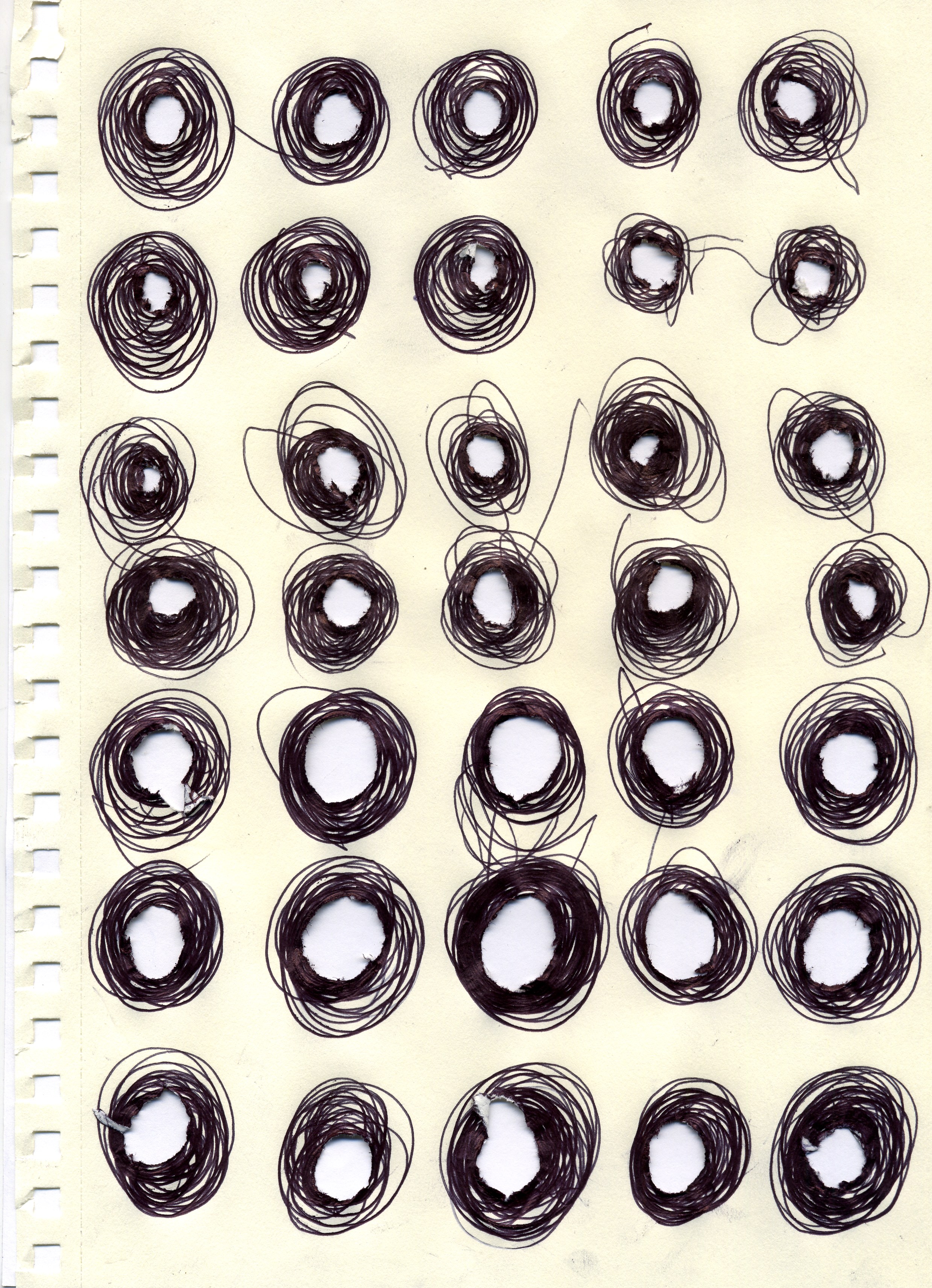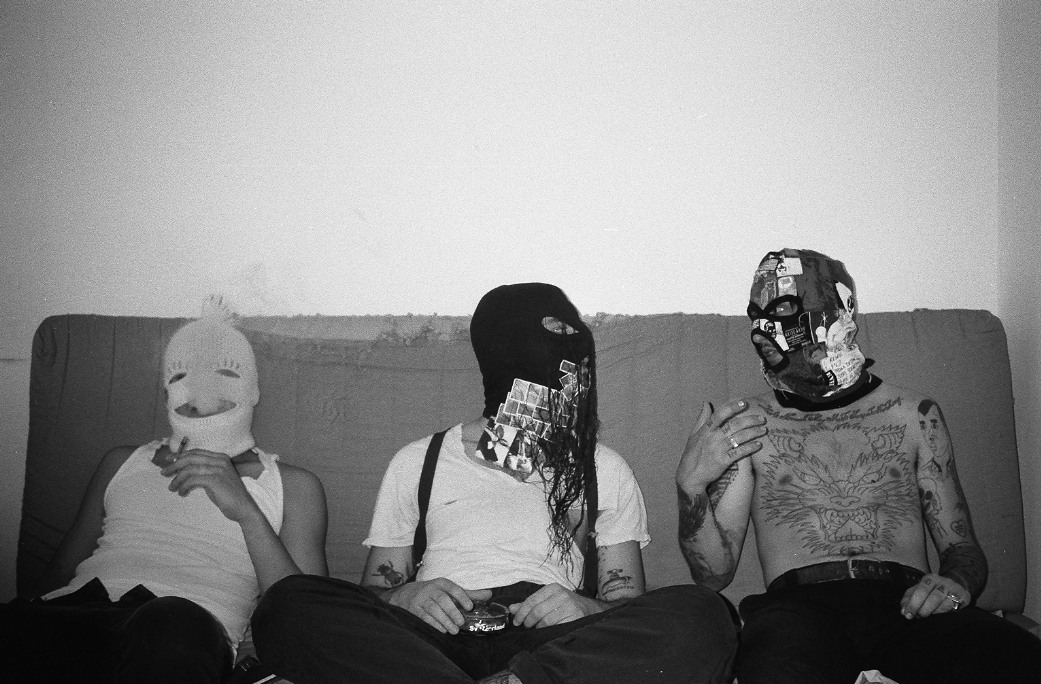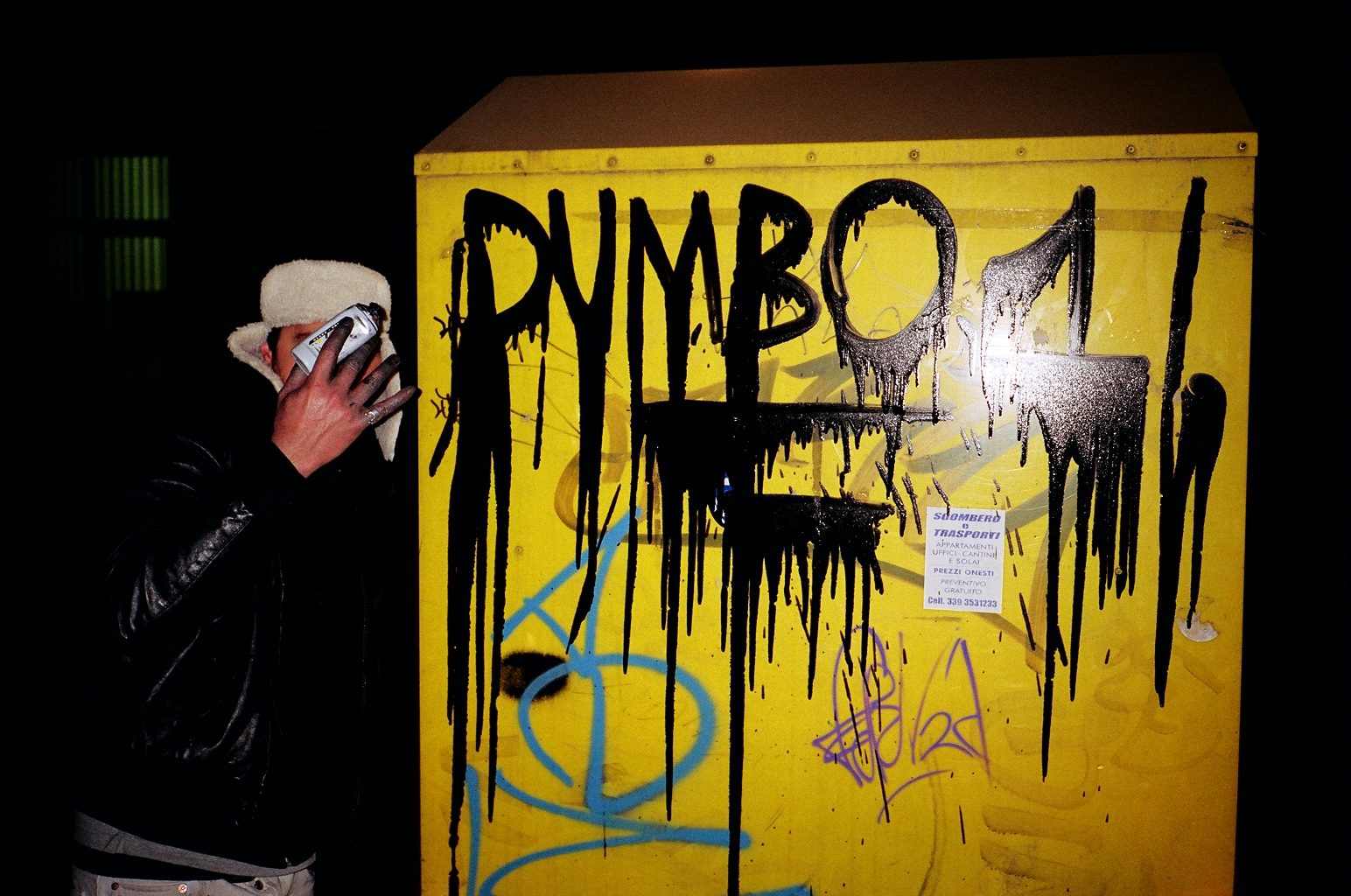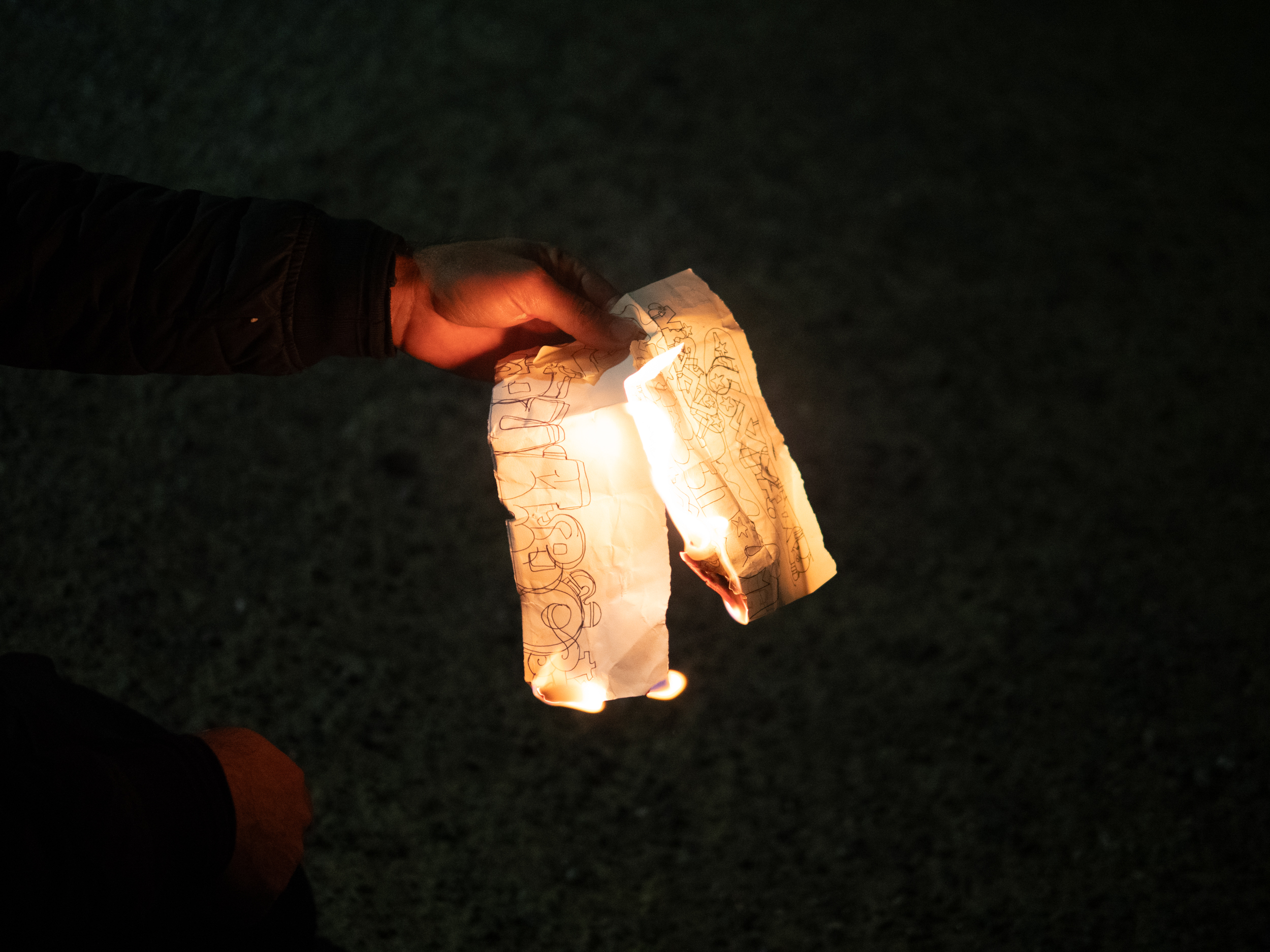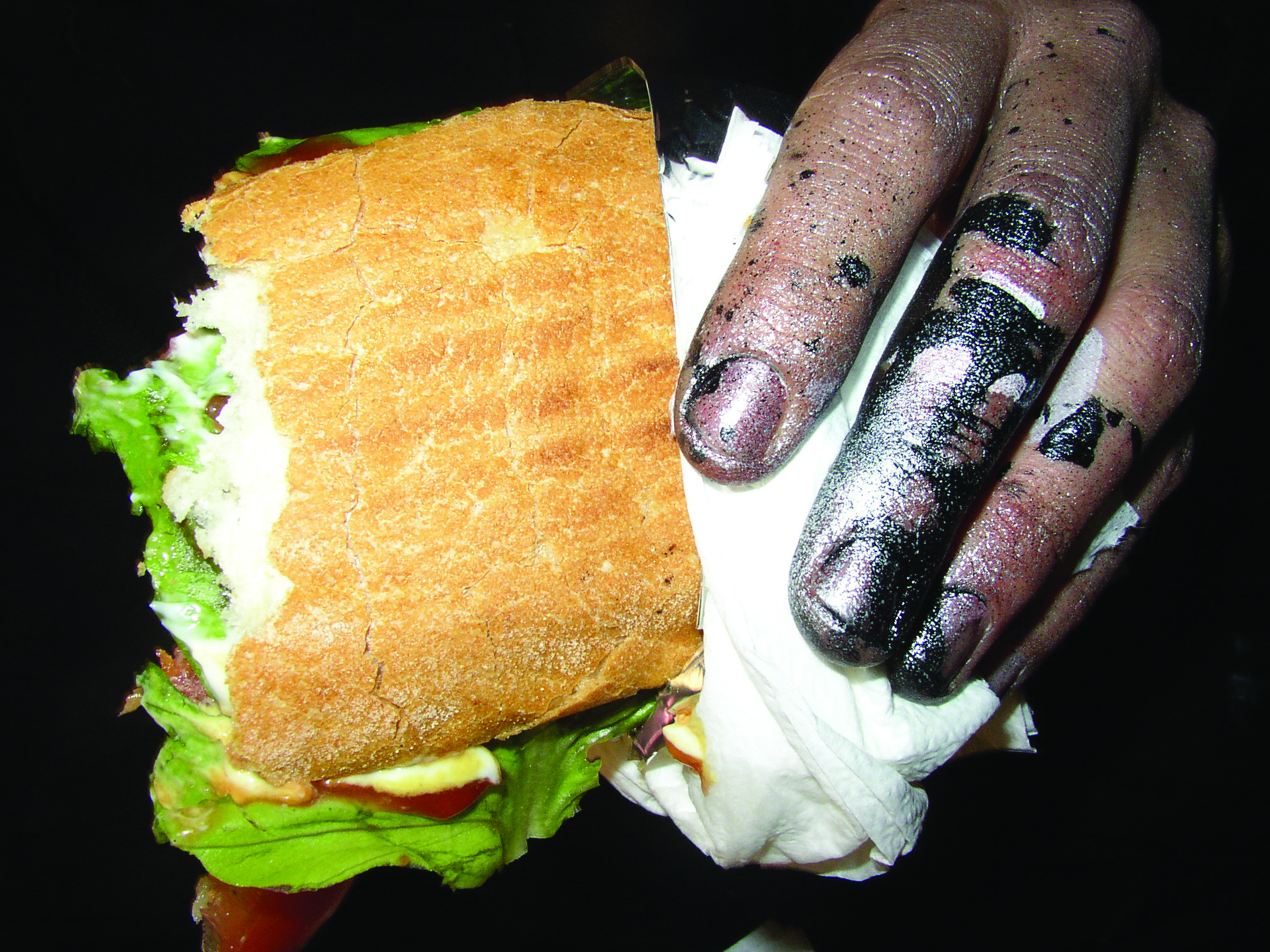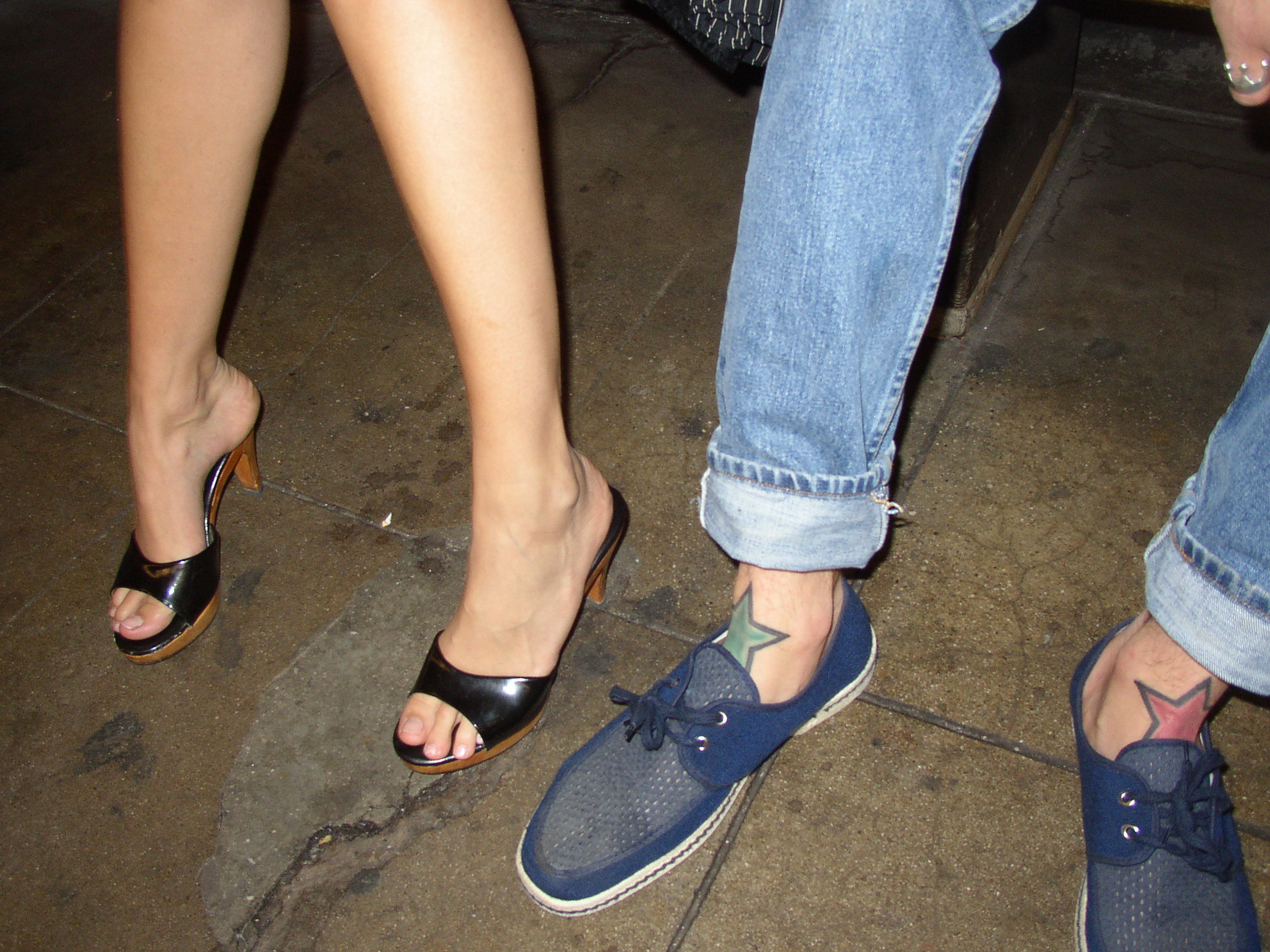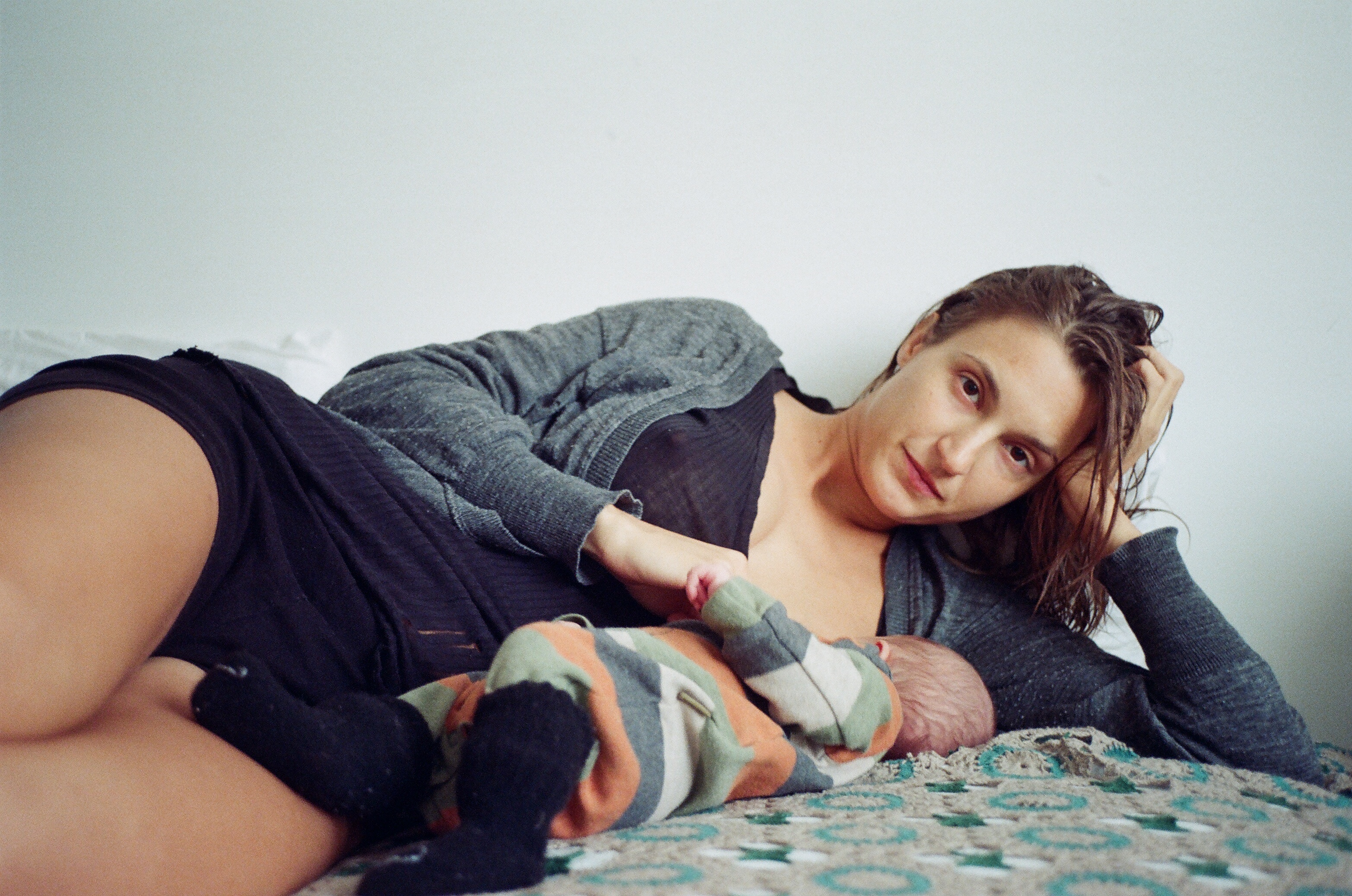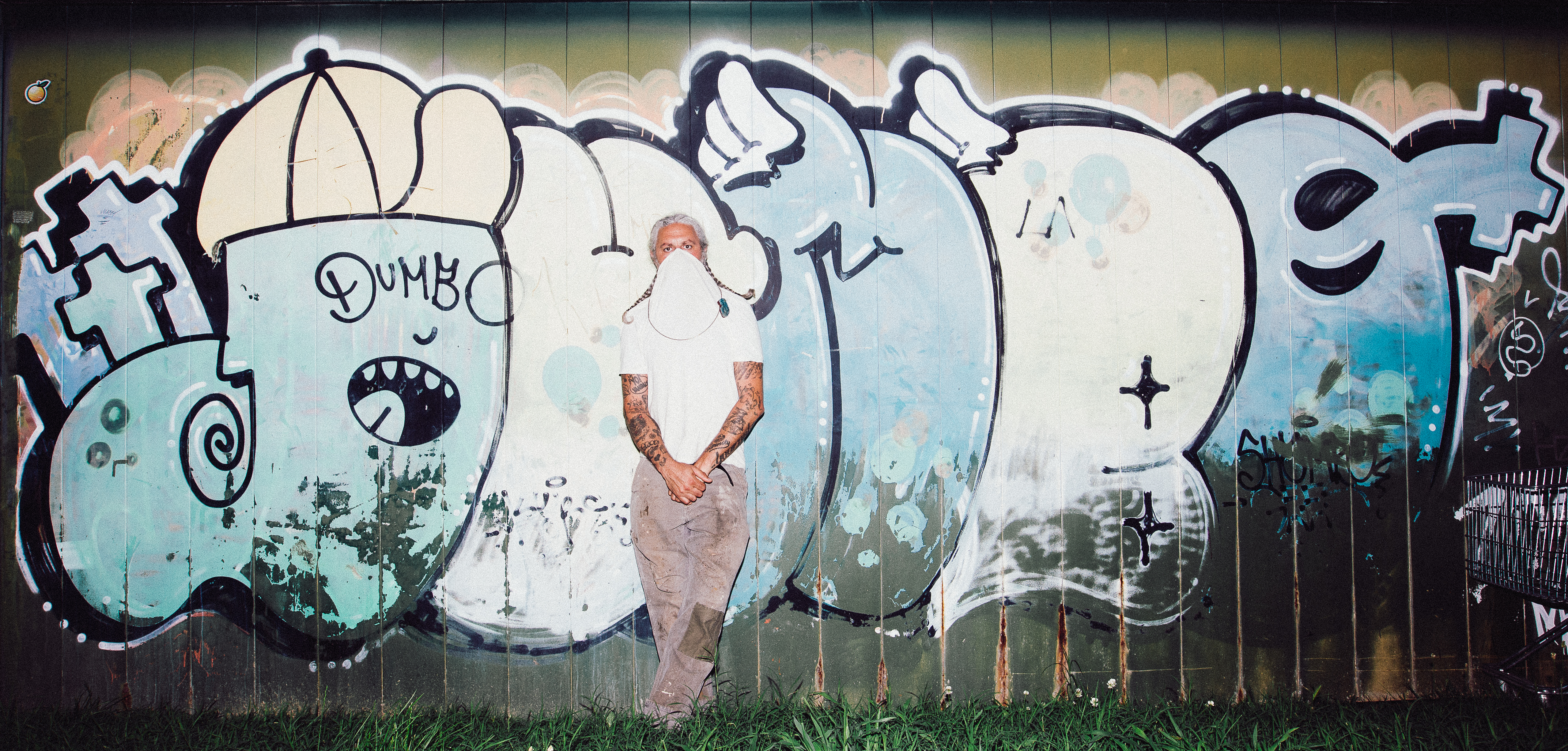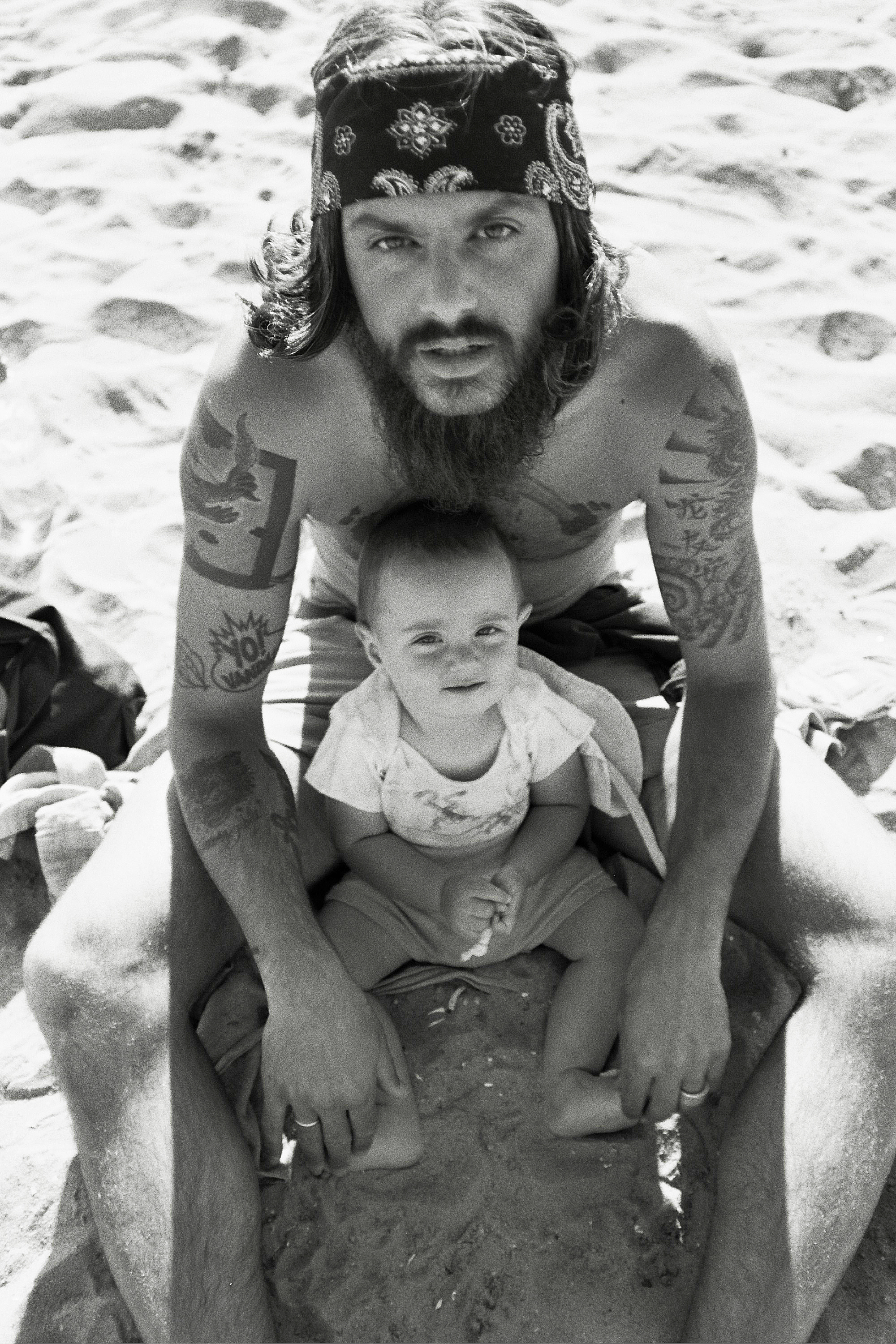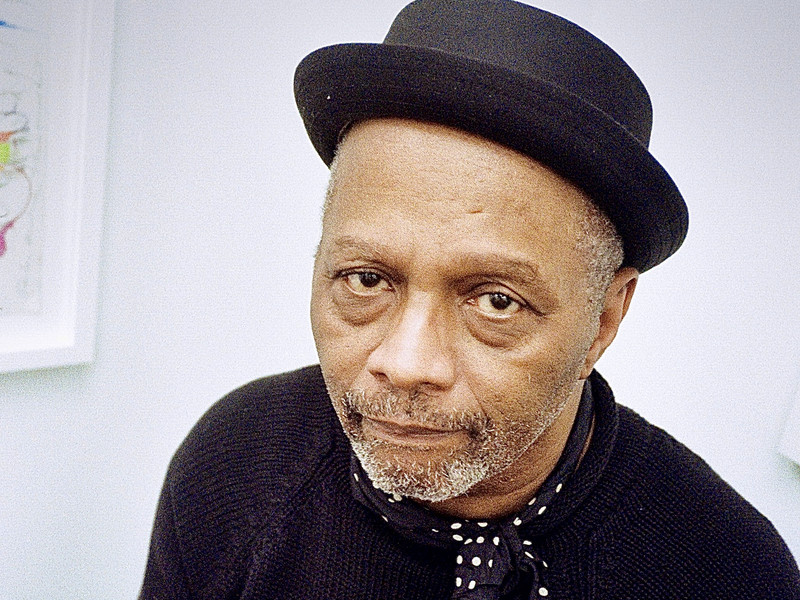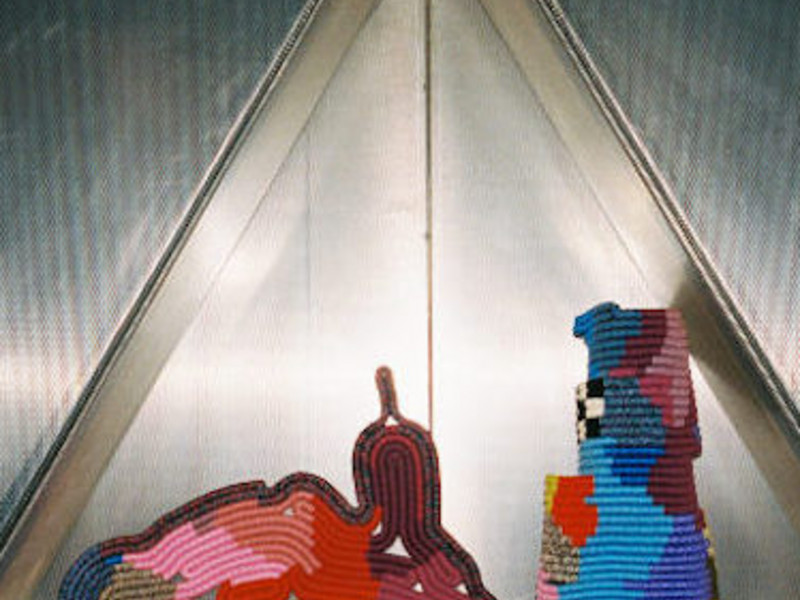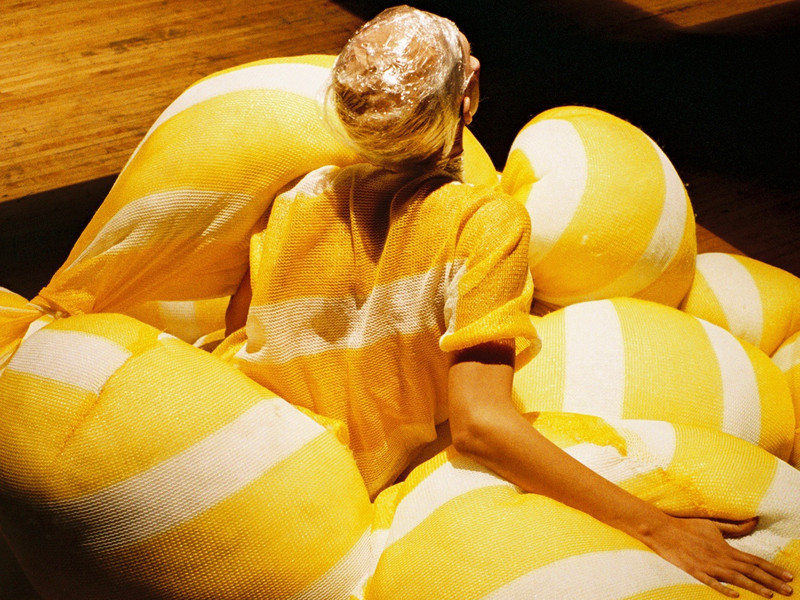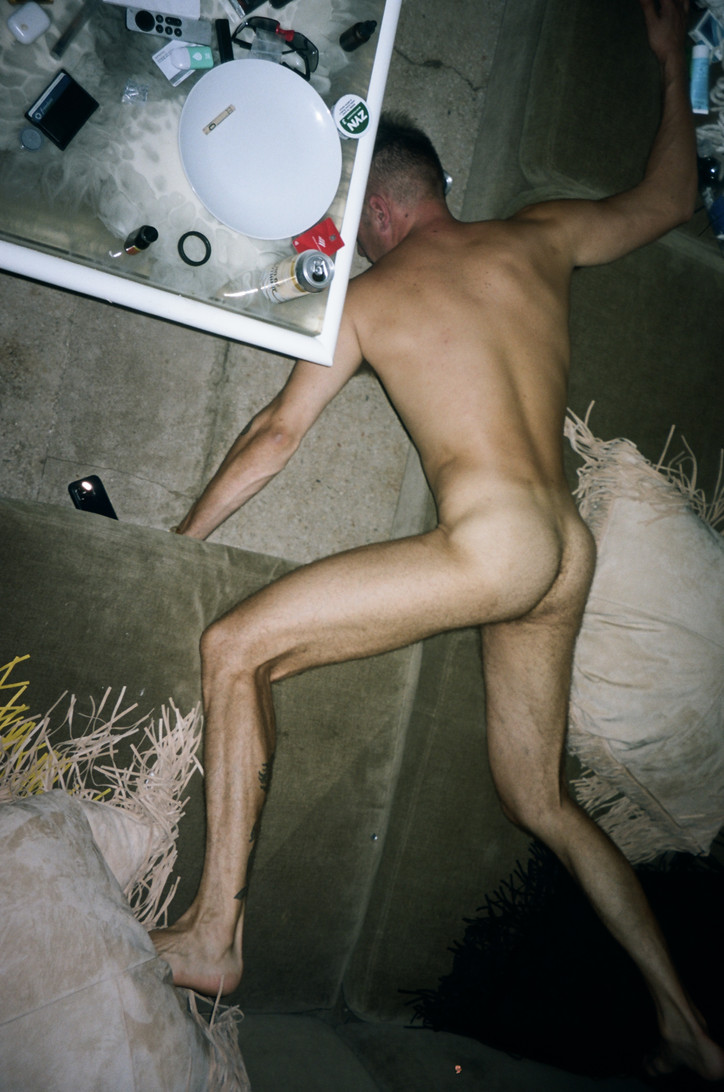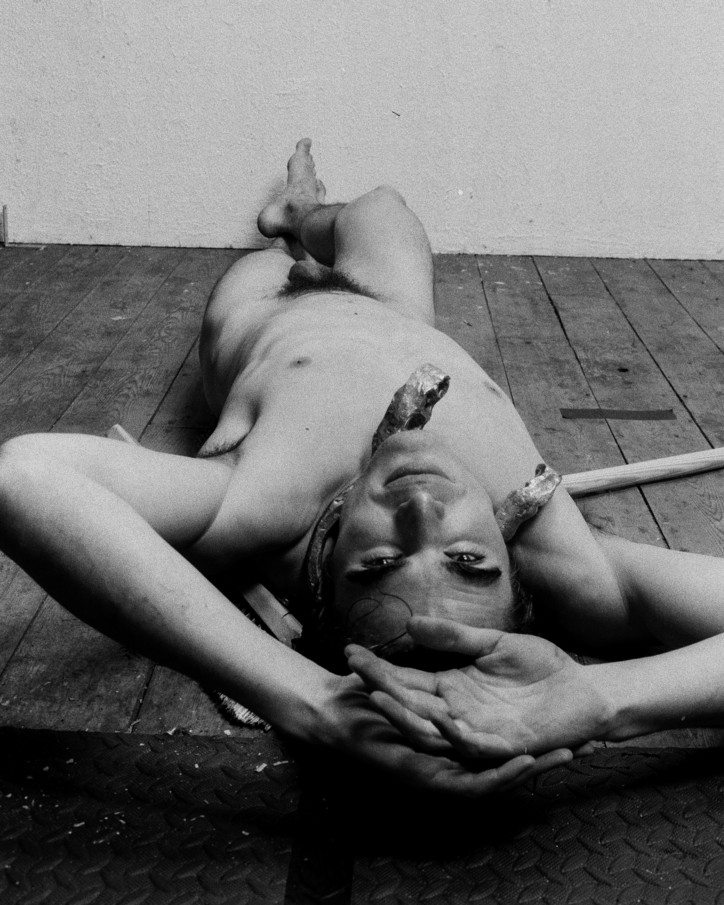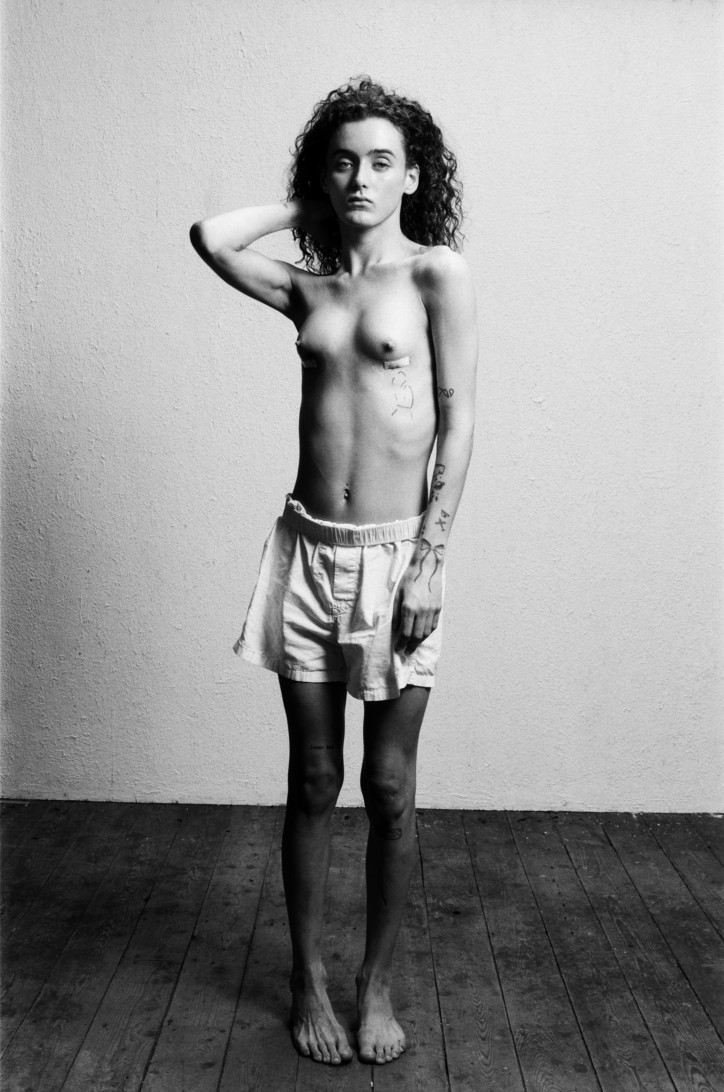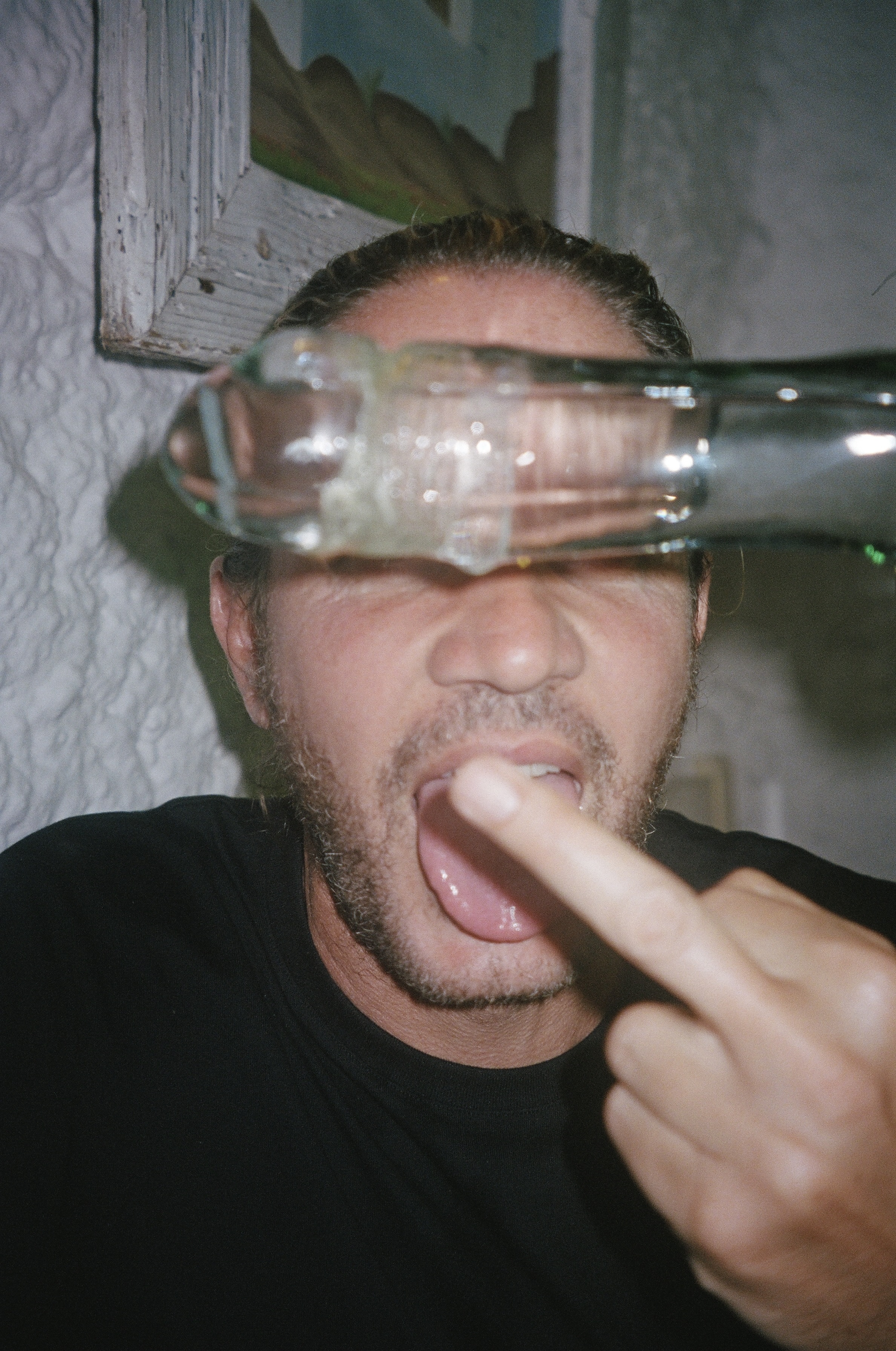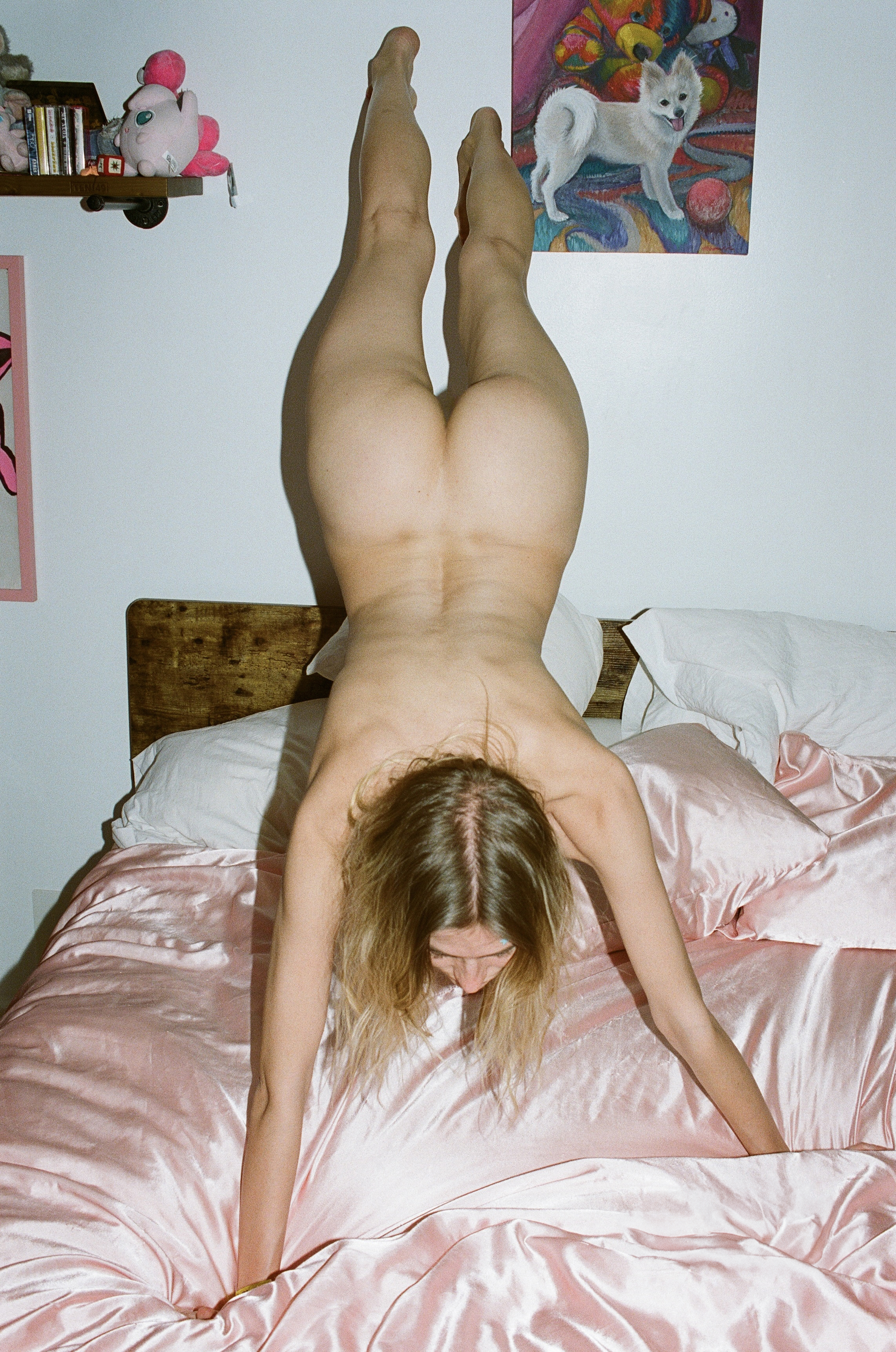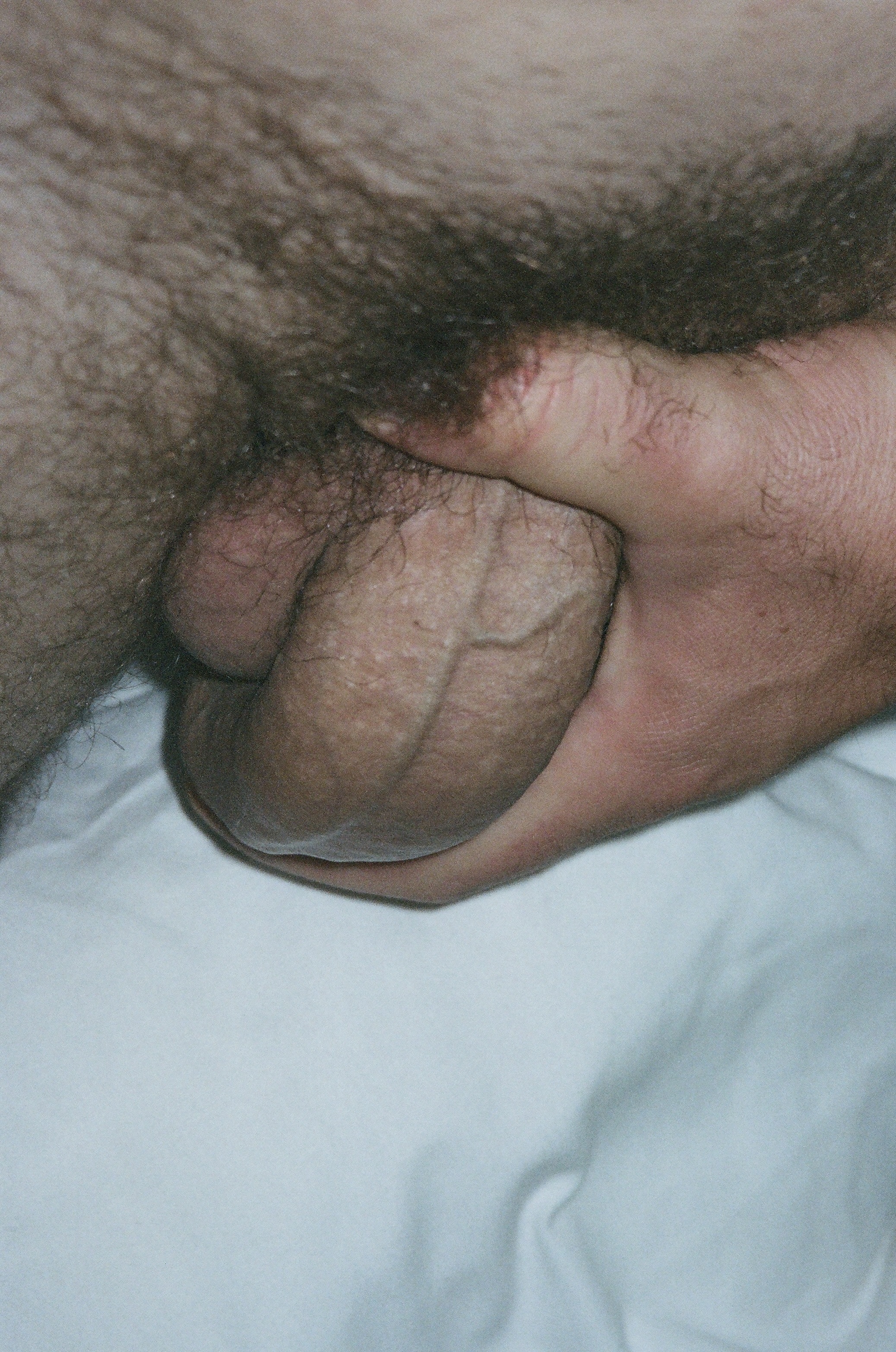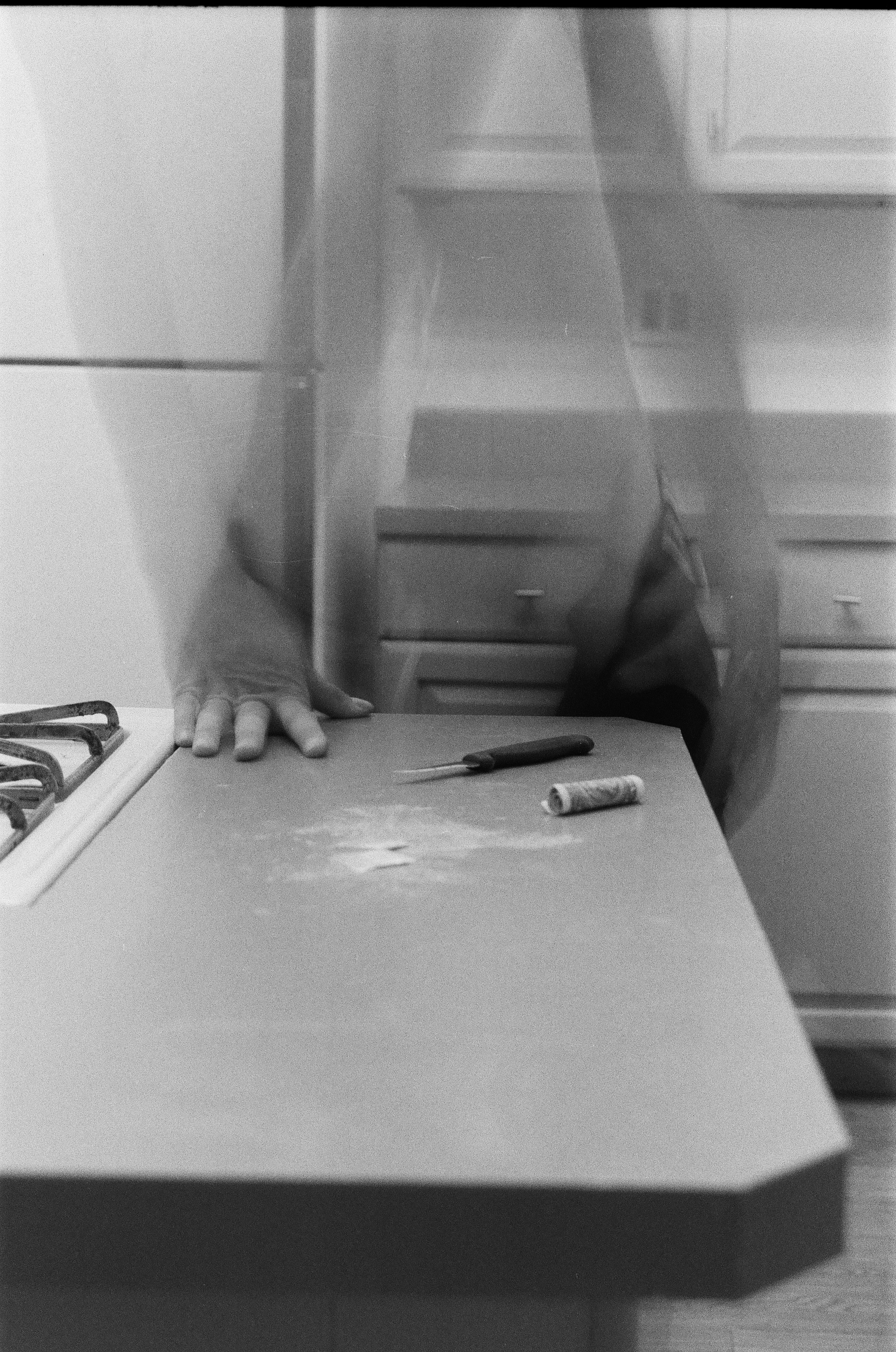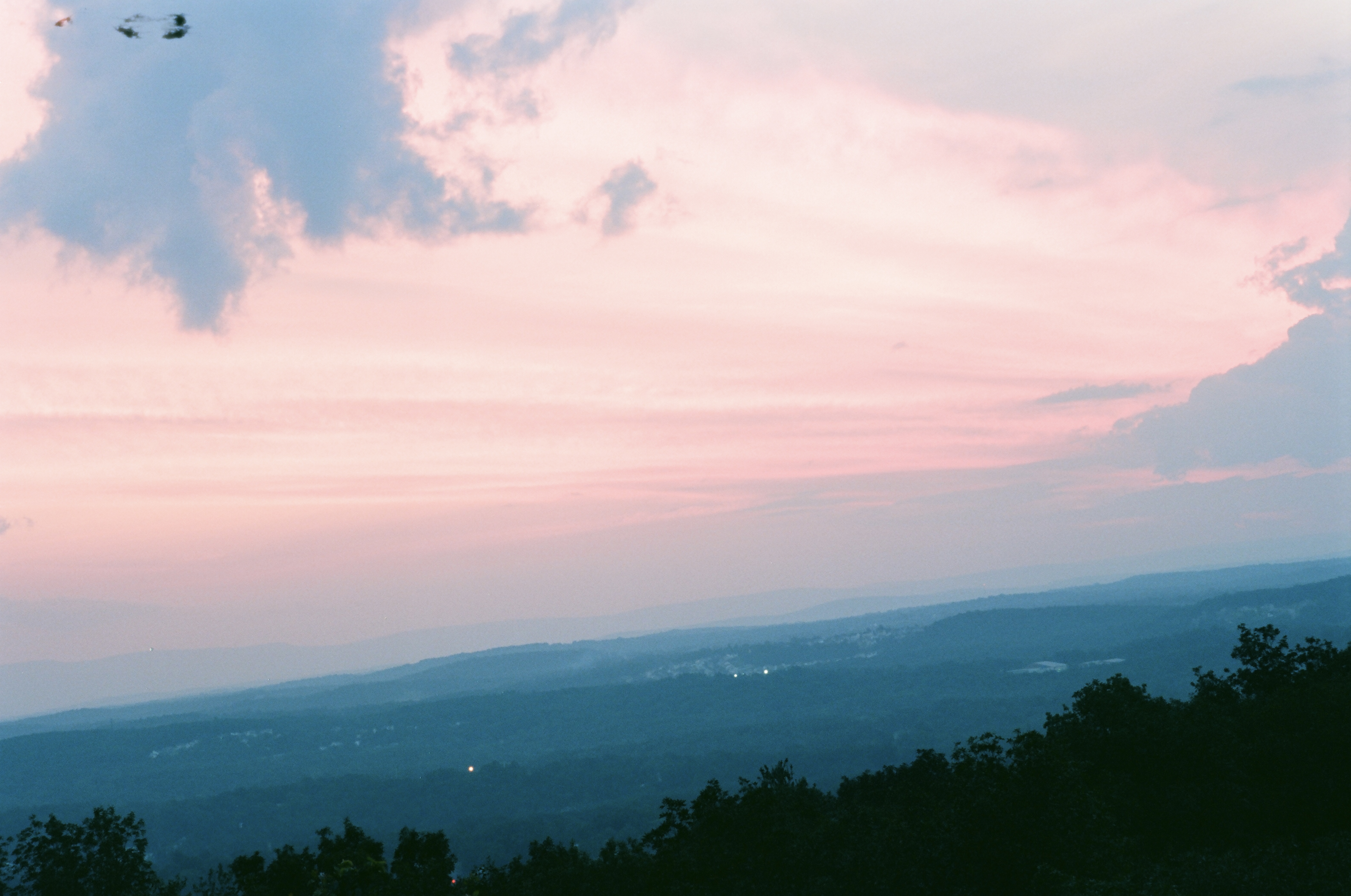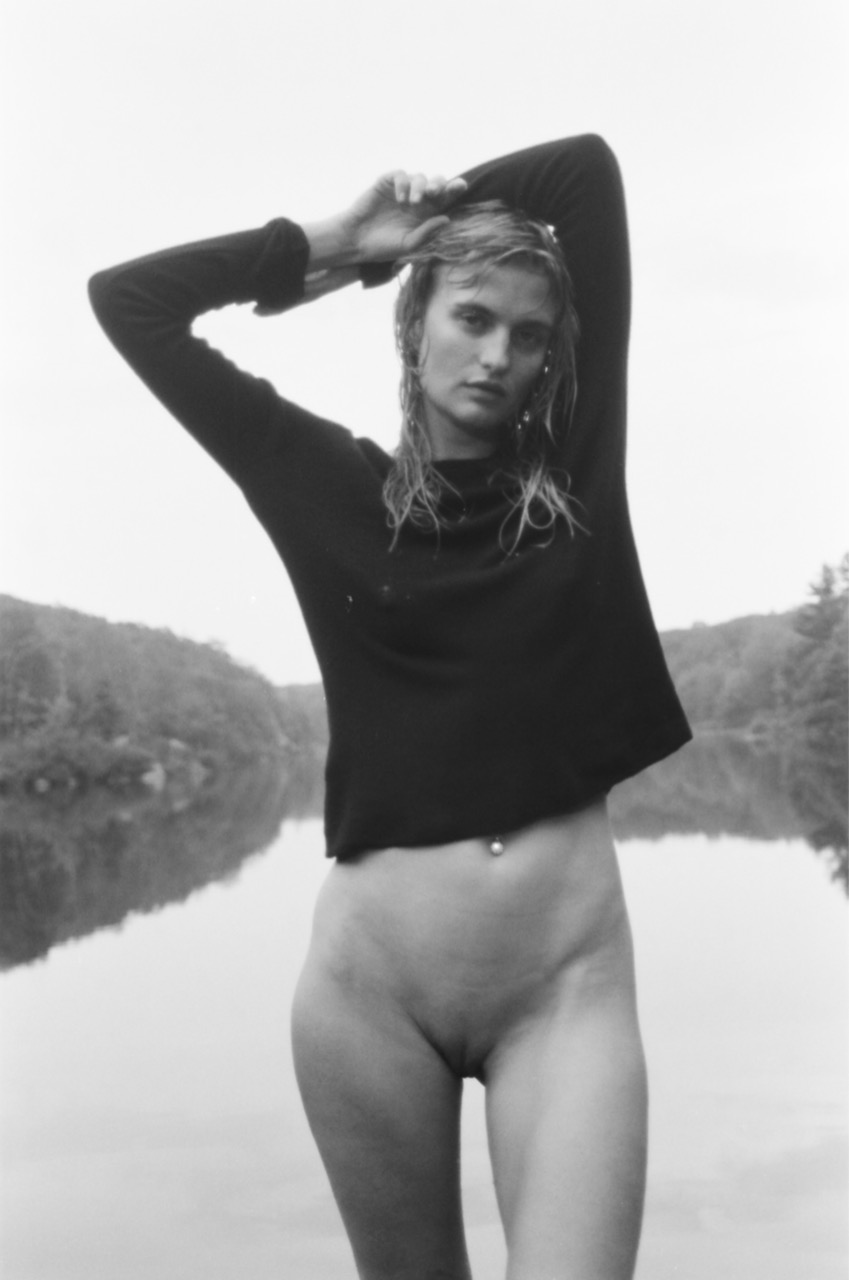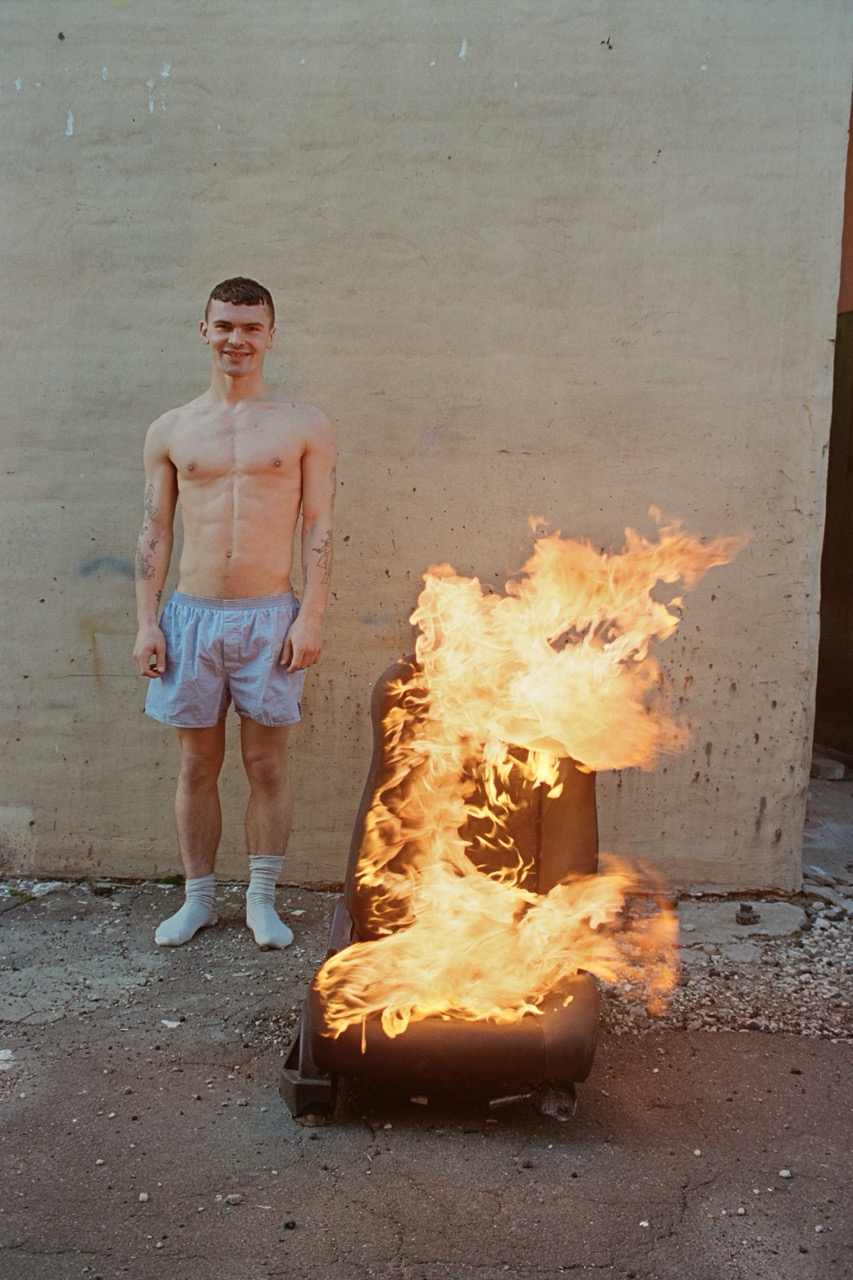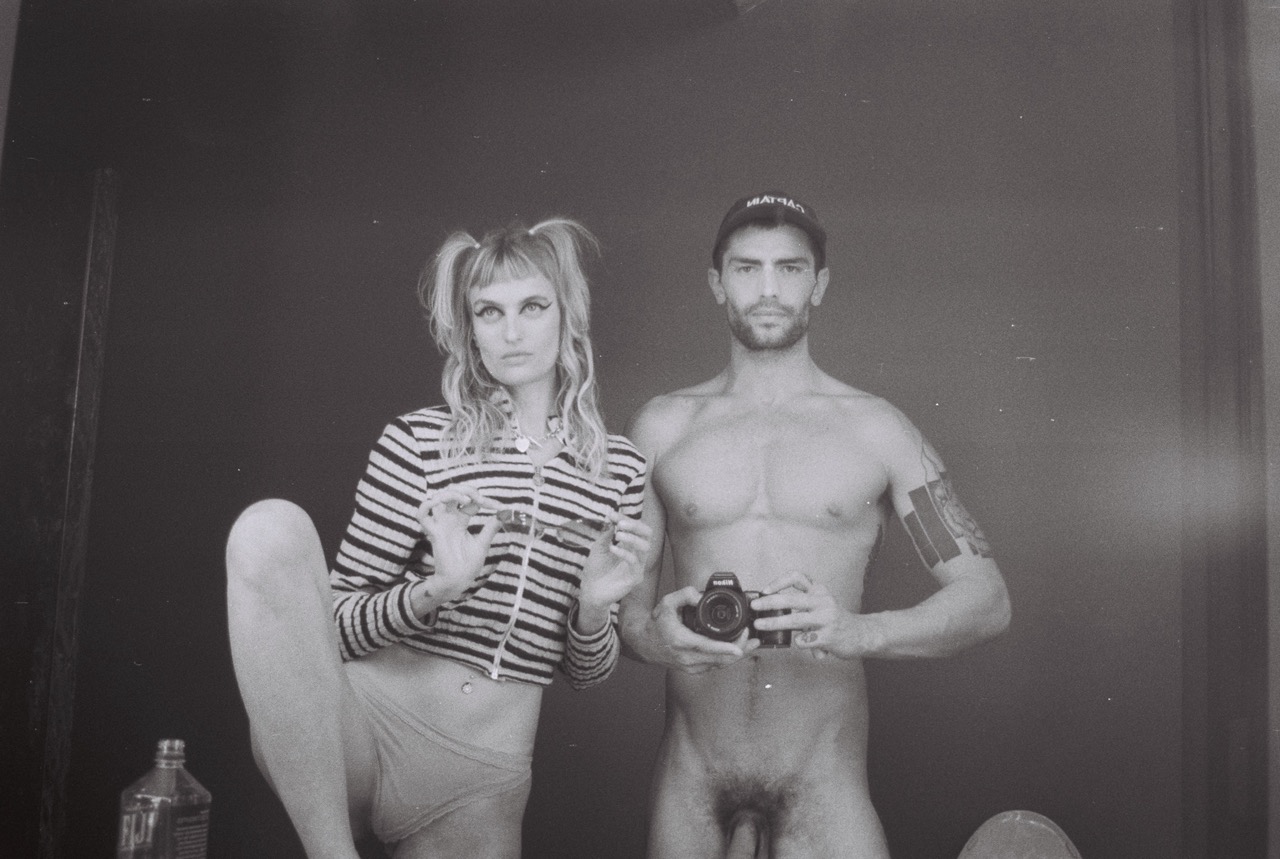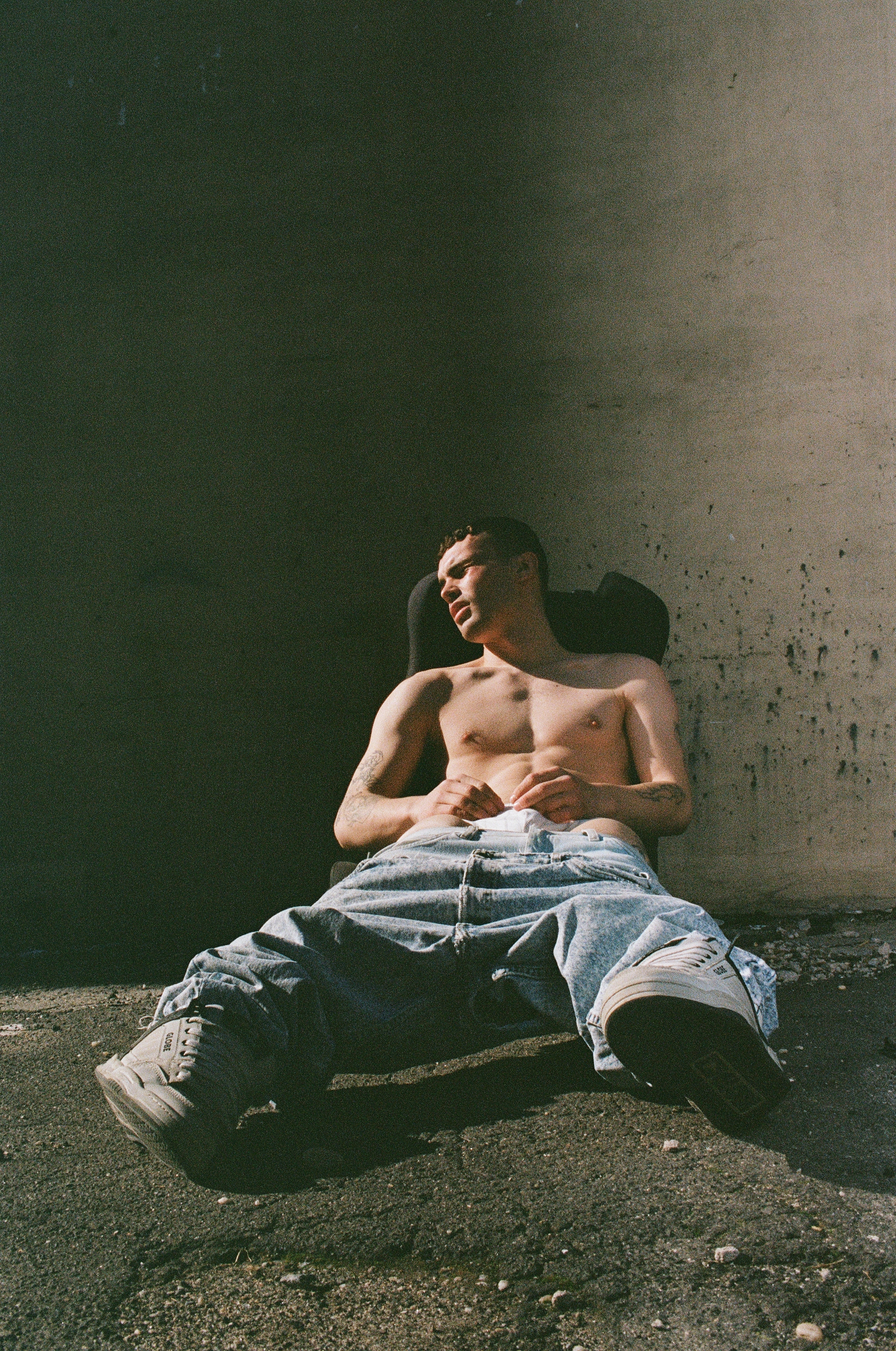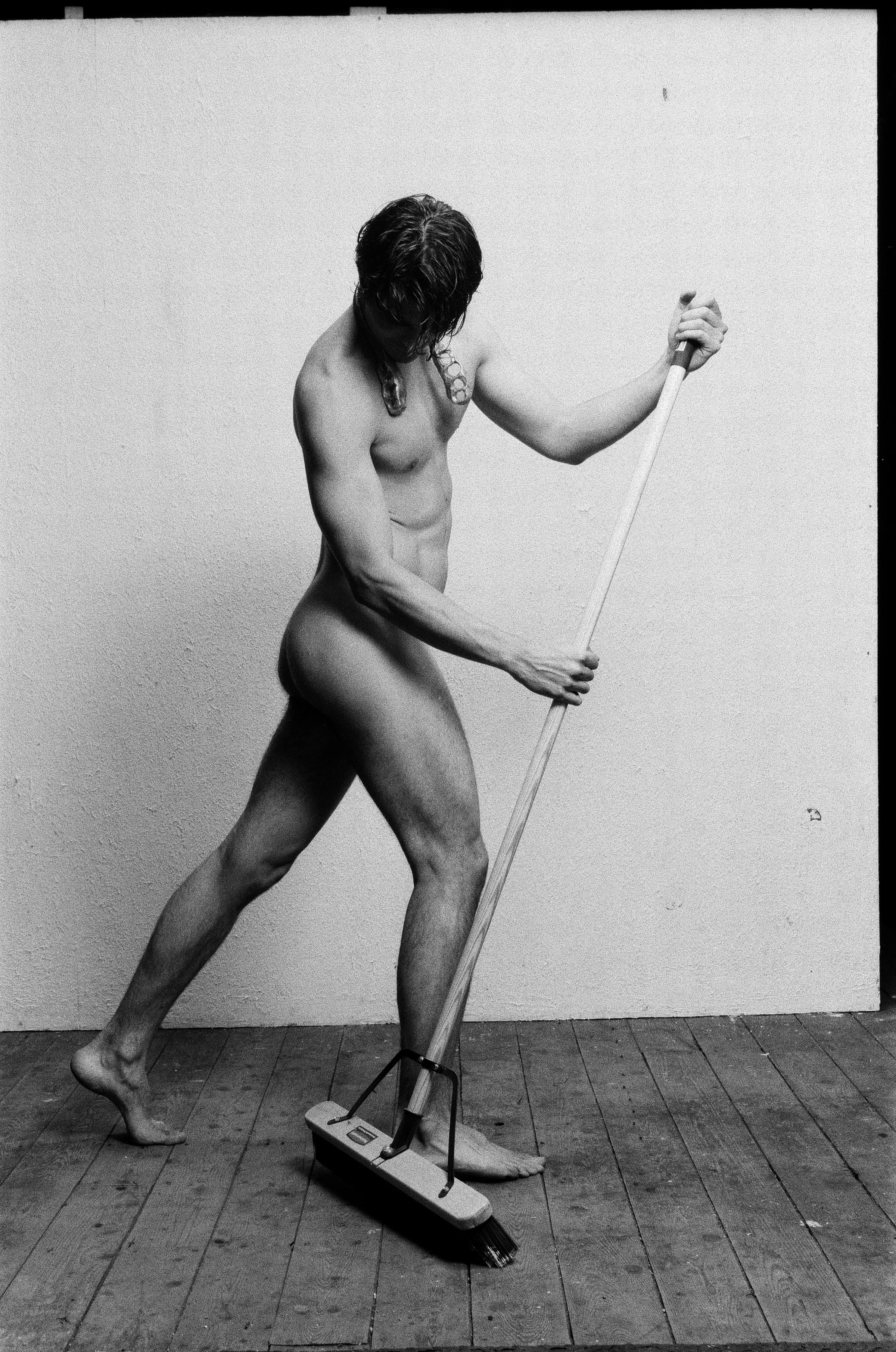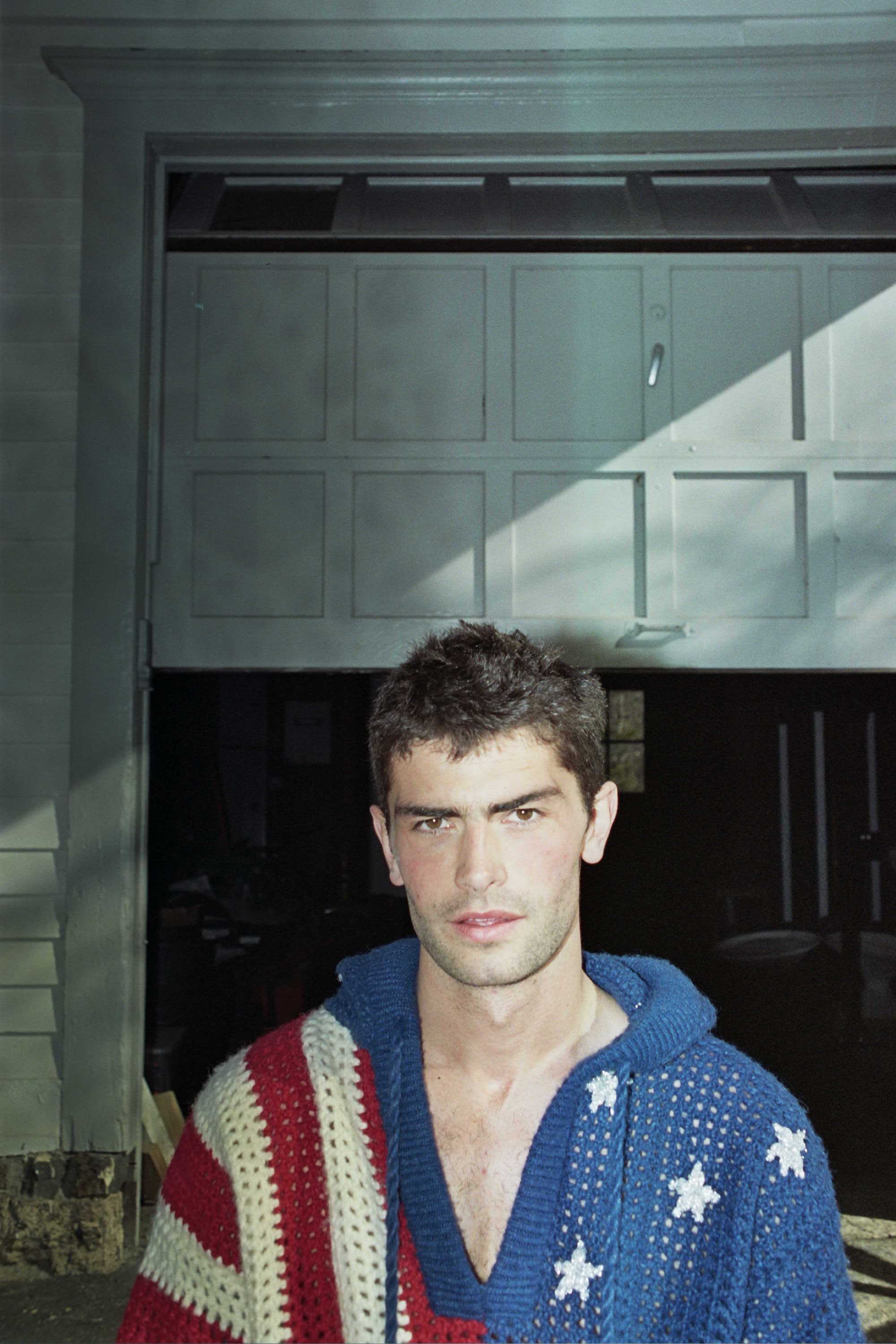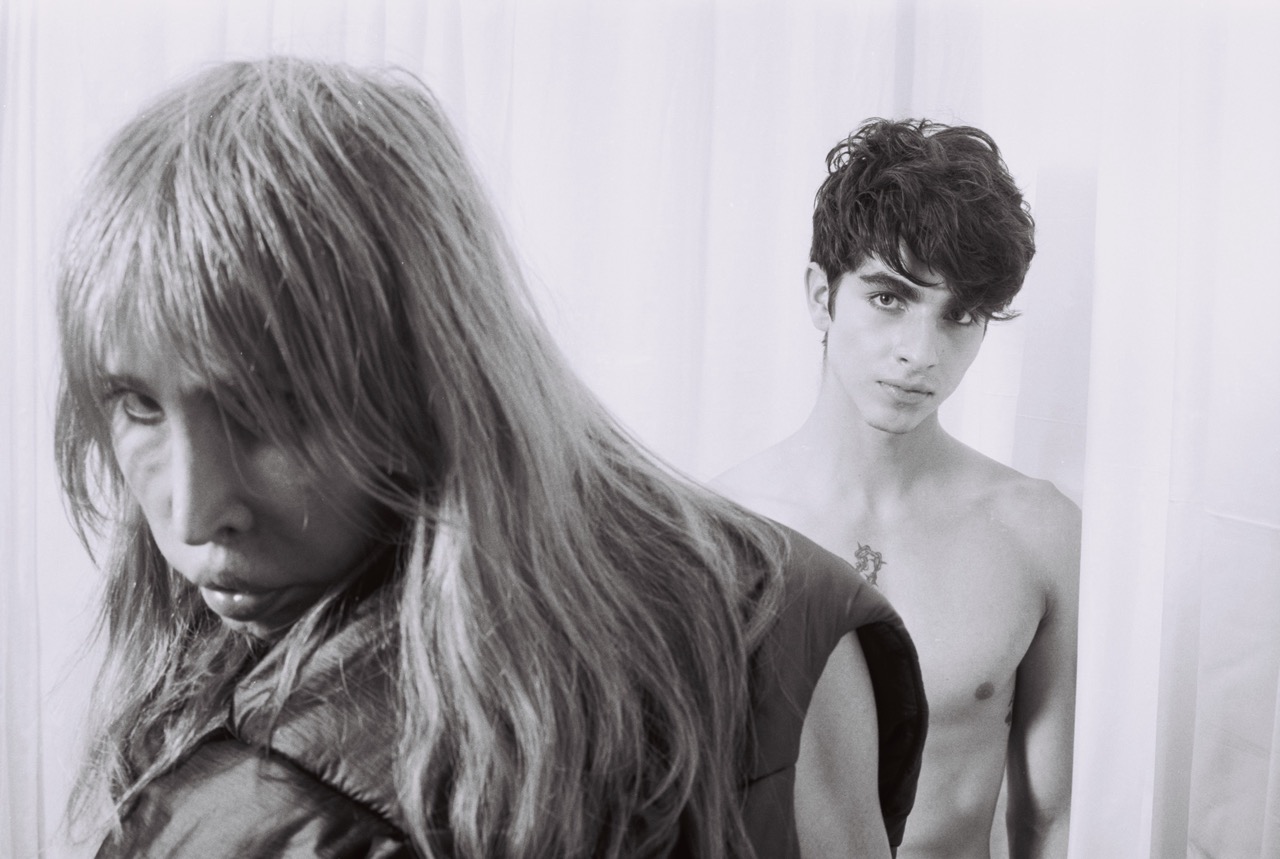“Semi-Traditional” Hybridity at 032c Gallery
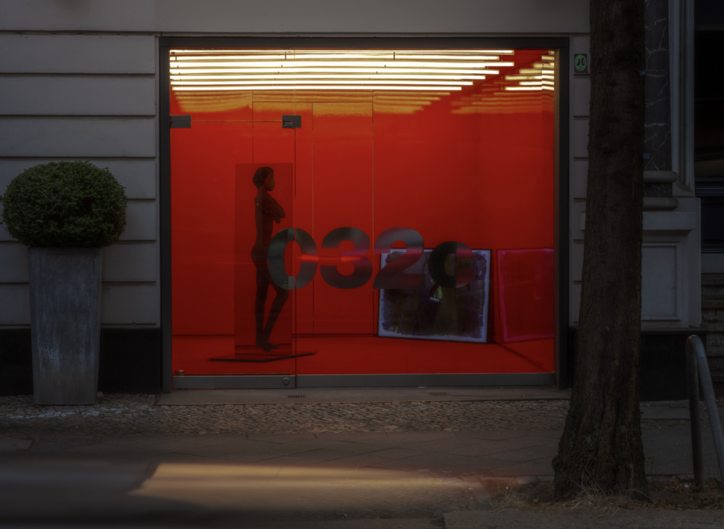
Berlin-based magazine 032c, which has long blurred the boundaries of a traditional publication with its extensive line of garments and apparel, launched a new, permanent, gallery space. Through its first show “Productive Narcissism,” artistic directors of the gallery Claire Koron Elat and Shelly Lea Reich insert themselves into Hugo’s ever-so-relevant dialect, challenging the contemporary conventions of a “publication” while addressing the self’s relation to re-invention.
In what ways will the gallery distinguish itself from the publication?
Claire Koron Elat— The gallery is part of the 032c universe. While the magazine is the nucleus of this universe, it expands into different realms – the ready-to-wear, residencies, exhibitions, and now the permanent gallery space. The gallery is an organic expansion, and at the same time, it questions the future of print publications. What are the alternatives to traditional ways of working in editorial? In our current state and time, flat images and digital are being highly prioritized; the gallery is also a response to that cultural shift.
Shelly Lea Reich— Our first show touched upon this topic of reinvention specifically, but it also reflects the publication and connection to redesign through the written word. We have worked with all of them in the past, which was a conscious decision to further and establish a long-term relationship with them. The gallery will be about establishing and furthering those connections, too.
You will be operating under a “semi-traditional model.” Could you define what this implies in practice?
CKE— It’s called semi-traditional because we want to start without a representation model: the gallery is officialy open and we have a running program, but we’re not yet representing any artists. It’s considered traditional because we have openly communicated that this is a commercial operation. We’re selling the art, and–while deeply interested in providing cultural value–we’re trying to make a profit.
But so is everybody, although desires of profit margins may differ. The business model under which art exists is hard to escape but easier to manipulate.
SLR— It is. And, in comparison to fashion, it’s something that the art world prefers not to talk about. Both Claire and I come from a background in the arts, meaning that we know the sensitivities in this scene, and how to address them with collectors.
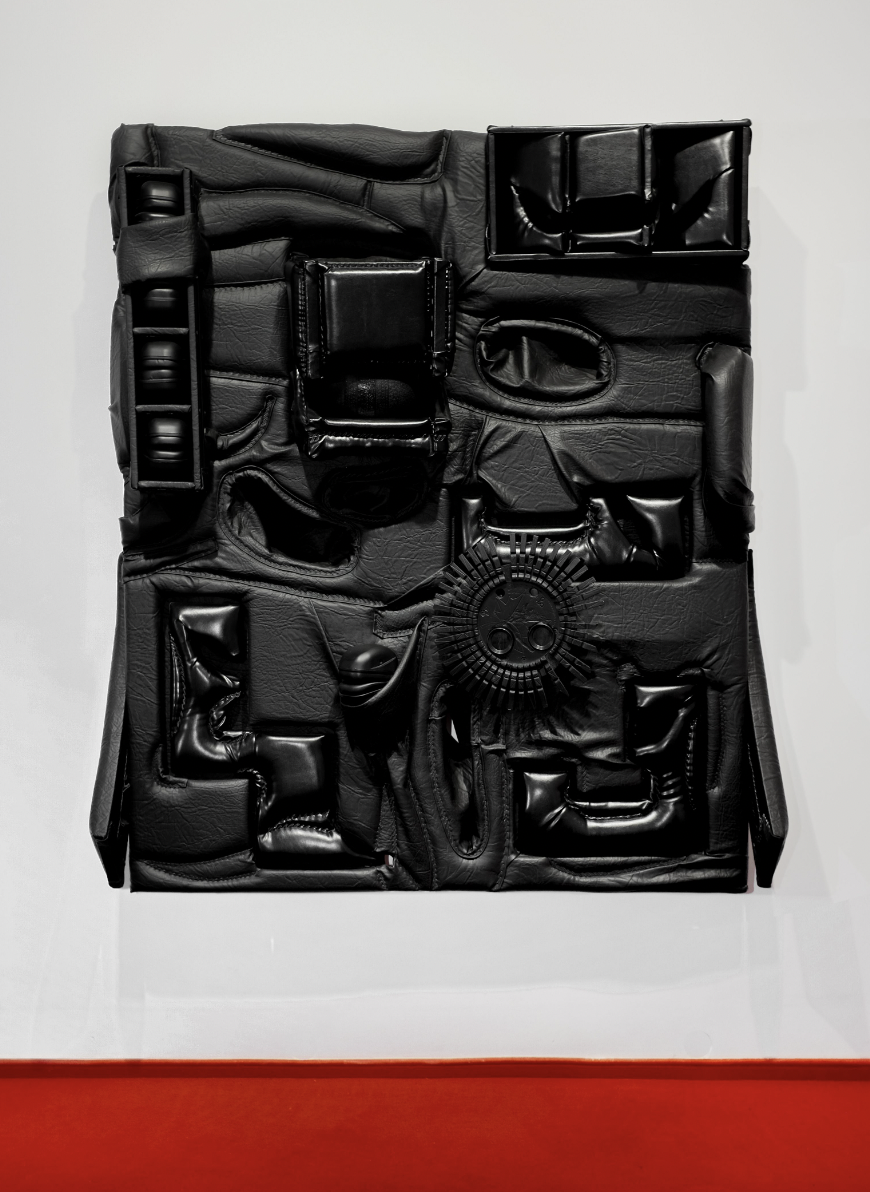
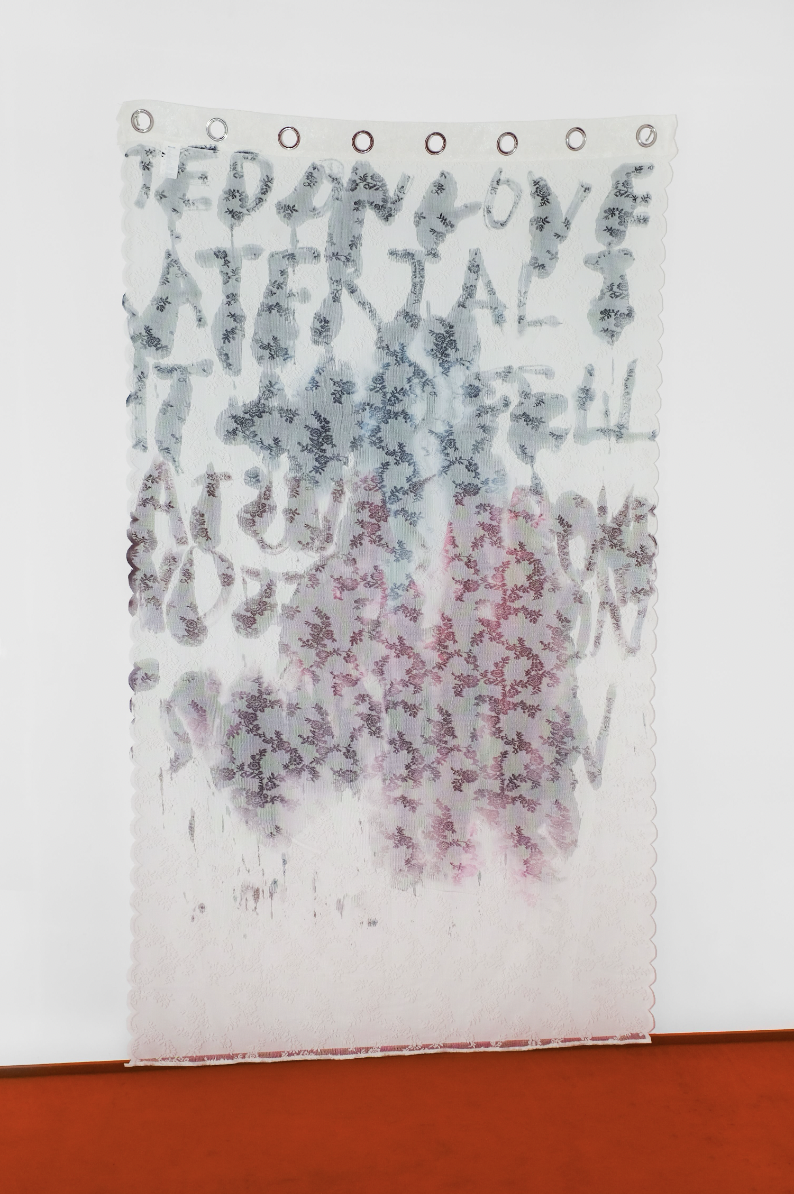
Cezary Poniatowski, Reverse Prophecies, 2021. Ser Serpas, Alice (Language) Praxis 4, 2024.
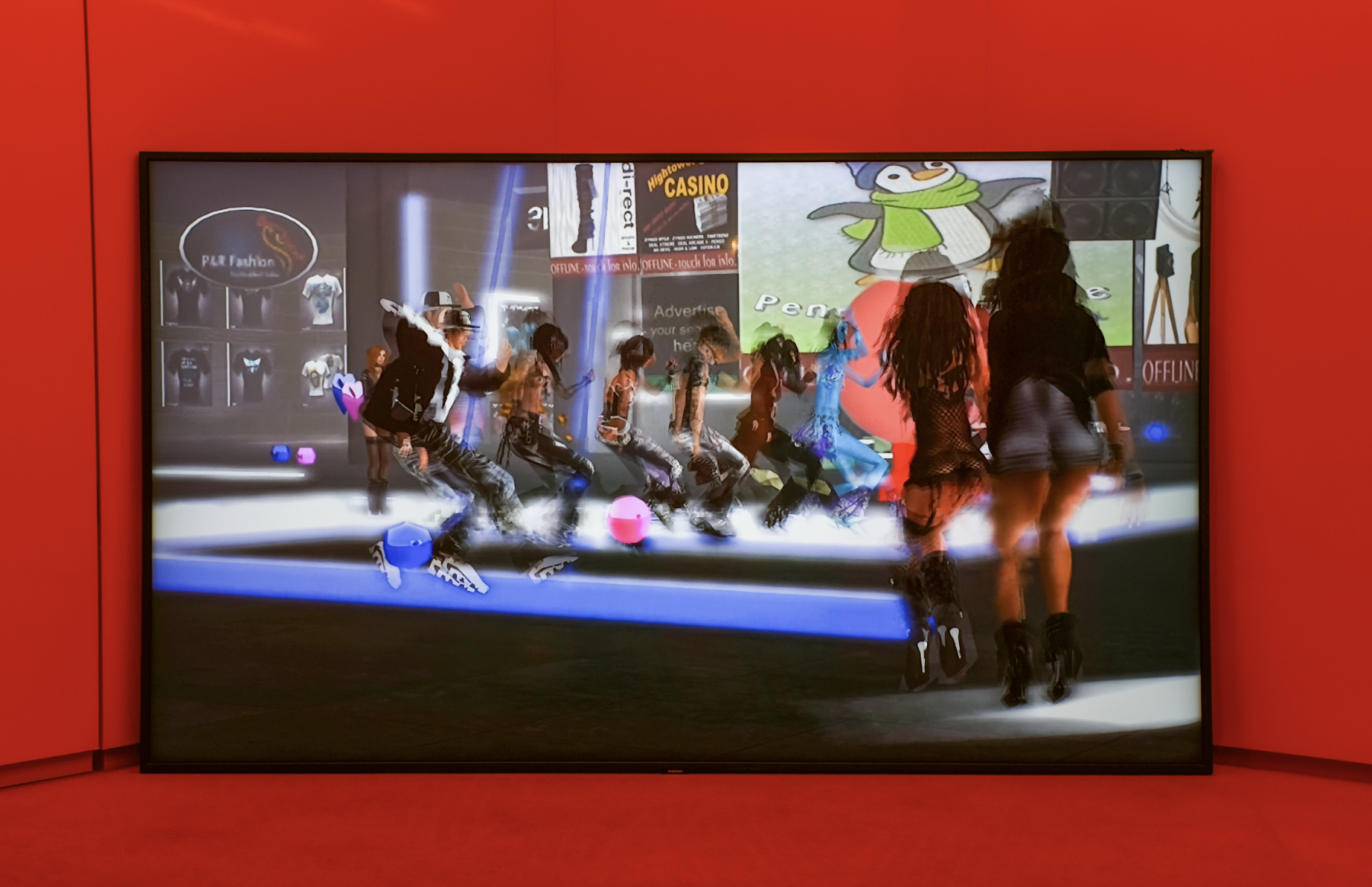
Jon Rafman, 2024.
How might the “sensitivities in this scene” differentiate, given the gallery's location?
CKE— 032c was founded in Berlin and therefore has a deep connection to the city and its creative class. In its history, themes, and ethos — while simultaneously being hyper-international — 032c is deeply tied to the city; It made sense to open the first permanent gallery here. Joerg [Koch] has been organizing shows for decades, back when he had the old office at Brunnenstraße and then in St Agnes Furthermore, Berlin is a great place for welcoming “novel” projects because the scene is relatively open to finding newness in its traditions.
SR— Berlin has established itself as an important player in the art scene. Many galleries in the city are showing exhibitions at a really high level with a real in-depth intellectual curation, and as the city is still considered a relatively large city, but with a more affordable economic structure, we find it quite accommodating for new establishments. This transition of Berlin becoming a dominant cultural city in Germany and also in general is particularly notable in the context of galleries that have migrated from Cologne, such as neugerriemschneider and Galerie Buchholz, which expanded here in the 2000s after the fall of the wall - there has been a resurgence in Berlin's cultural landscape. At the same time, there’s still room for new initiatives to rise.
CKE— So far there hasn’t been any criticism. Probably because we’re not trying to portray the gallery as something that it isn't. We’re not a non-profit or charity foundation. We’re a gallery that, just like any gallery that travels too fairs or simply organizes exhibitions, is trying to sell what you see.
With the program we want to draw attention to the hybridity of the creative industry, and specifically that of art and fashion. Artists have always collaborated with mediums outside of their personal “traditional means,” or with other artists, or with fashion brands. Likewise, fashion brands have been inspired by artists throughout time. This is nothing new. That being said, what’s recently frowned upon is the idea that the more hyphenate you are — a DJ, a photographer, an artist, a director — the less focus or authority you hold over your chosen practices. I’m not bringing this to the table to make any judgement, but rather the opposite. Shelly and I have had a longstanding vision of reframing this hybrid intellectually. 032c Gallery will provide that. It will welcome experimentation.
The space is re-thinking the means of a magazine, while the exhibition itself is also commenting on the theme of reinvention. Through Boris Groy’s essay, the show investigates how “we are required to constantly re-invent ourselves,” thereby placing us in a permanent state of uncertainty. Who places this obligation upon us?
CKE— At the end of the day, it's not an obligation. It’s as philosophical and controversial as the question regarding free will. I would argue that you put this “obligation” on yourself, but doing so almost just by being part of contemporary society, especially in creative industries where one is “required” to reinvent to stay relevant. It only becomes dangerous once the speed of these reinventions reaches a constant. Endless adoption leads to uncertainty because that's where the core of oneself might get lost.
SLR— I think “requirement” here could be quite positive rather than negative. It’s very freeing to have these possibilities to reinvent yourself constantly. And it's something that's quite exciting. To be able to access a new version of oneself is to interact with different cultures, ideas, and expressions. It’s all part of a larger game. A good example of this is Amalia Ulman. We exhibited another work by her recently “excellences & perfections,” which recently celebrated ten years. In it, she intentionally adopted the role of a hyper-glamorous woman living a very lavish public life. Her friends and close circle quickly became confused with what was real and what wasn’t, but what’s fascinating is that so did Ulman, too. She explains how she got lost in the making, and confused her personae and personality for each other.
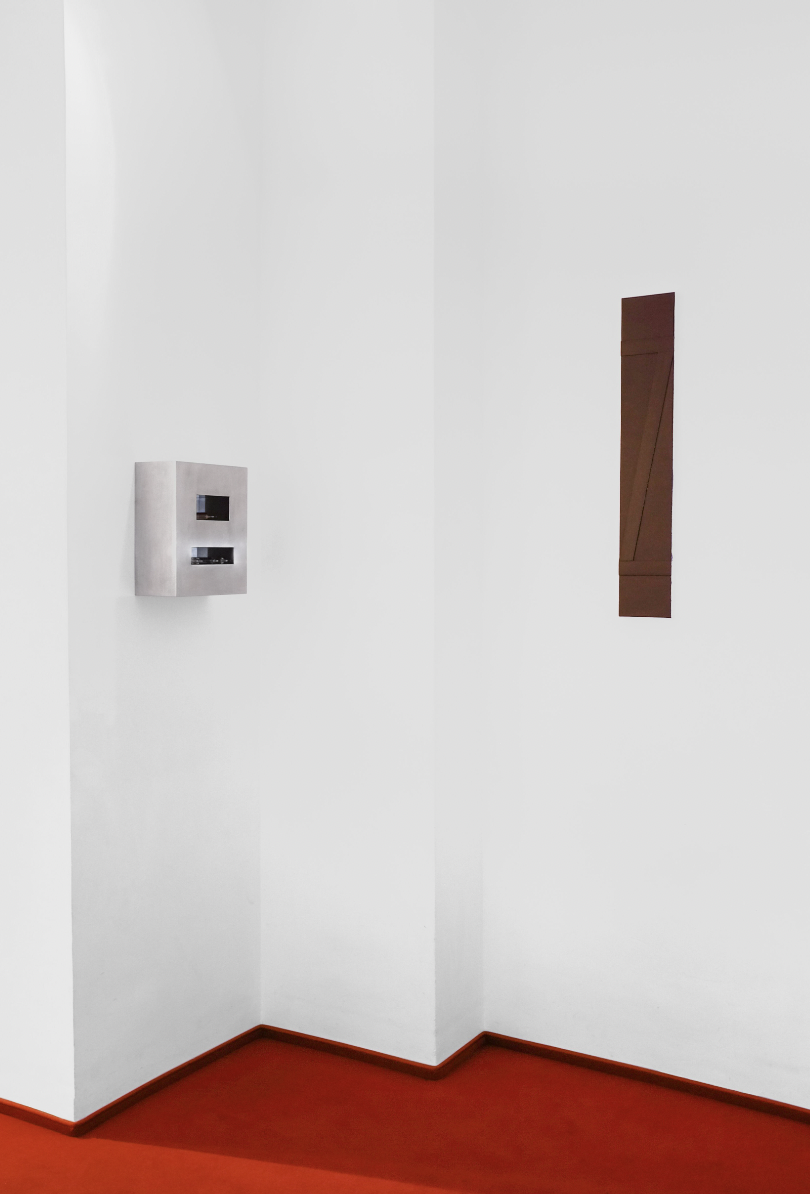
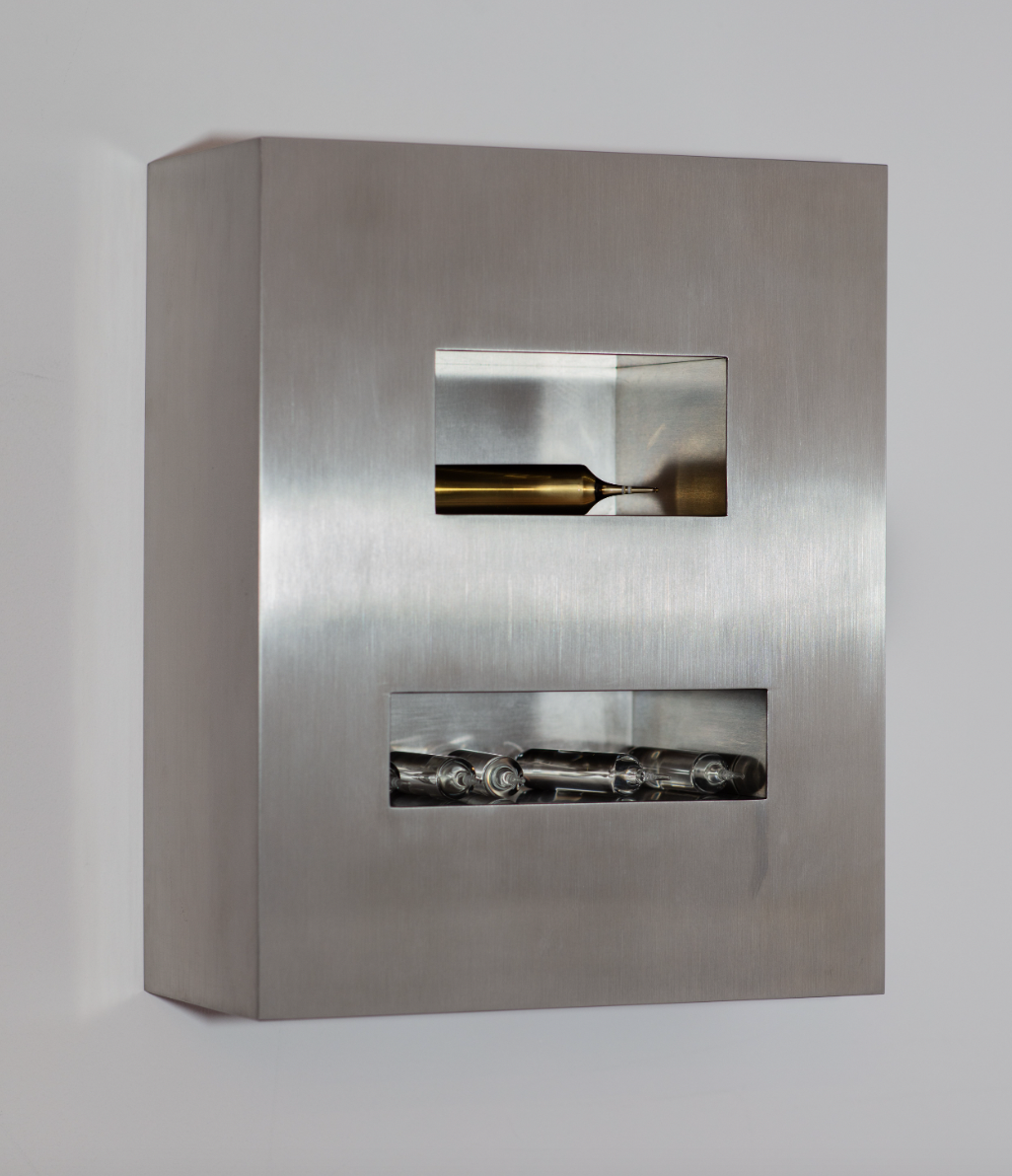
Lukas Heerich, Untitled, 2024.
Re-invention can become dangerous once the means of it is in the hands of the wrong people. And given that a lot of reinvention, as with Ulman, takes place in a virtual space or as a response to virtual hierarchies, does it not pass the risk of unregulated manipulation?
SLR— But you also have the freedom to manipulate the tools in return. As you are aware of these sets of rules, or your role as a user, that's where it becomes playful. I think that’s what’s specific about our times, that it’s easier if not even easy to get access to tools that weren’t accessible before. Circumstances under which self-creation is not only possible but infinite.
CKE— Humans were the one who built the algorithm. It’s not like we are being controlled by this otherworldly superpower. It’s not the man versus machine here—it’s you versus yourself. It’s a mechanism that we created and something that we also still control. Of course, we’re not always conscious about what we consume or in the ways in which it affects us. But once we take time to reflect upon it, question it, question ourselves, is when we get control over our self-reinvention.
How often do you reinvent yourself?
SLR— Good question. I think that we reinvented ourselves with the gallery. It’s been a shift in mindset.
CKE— For me, personal reinvention it's not so much about reinvention but rather a progressive invention. What about yourself?
I got a new haircut. A new look is always a reinvention because suddenly you are perceived differently. I think of reinvention as an external, social act. It’s dependent on the response, even though Narcissus might suggest otherwise.
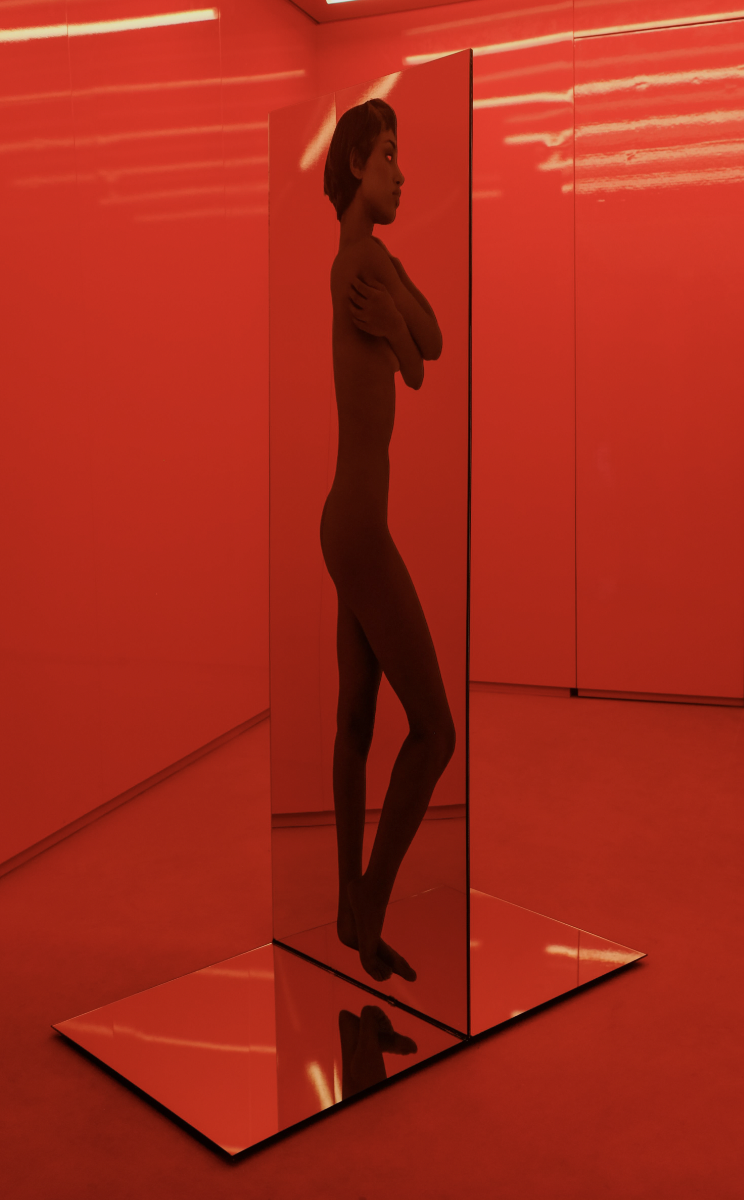
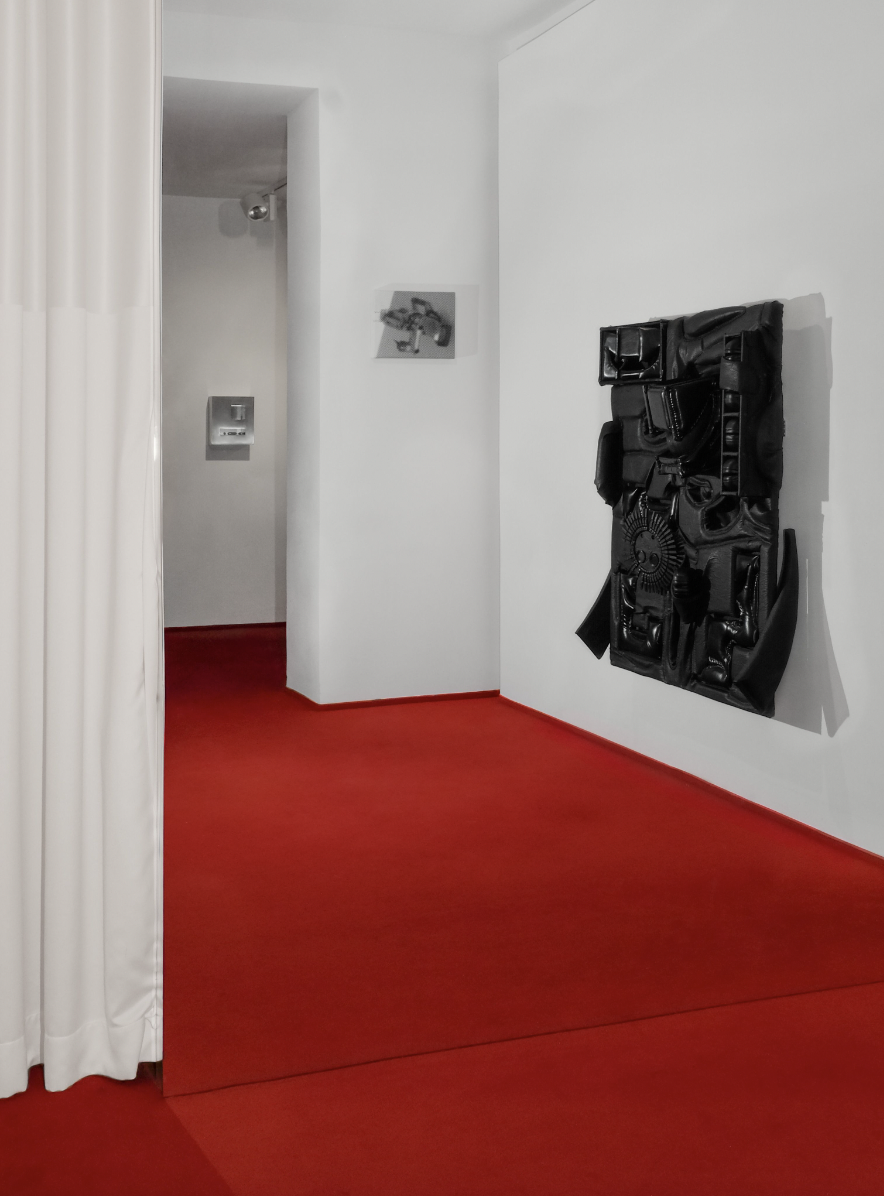
Hugo Comte, 2024.
“Productive Narcissism” will be on view at 032c Gallery in Berlin until October 8th, 2024.
